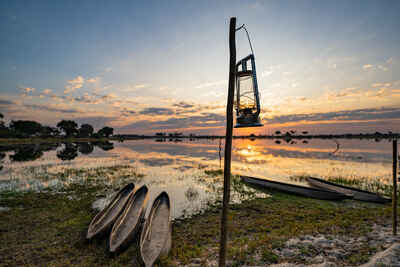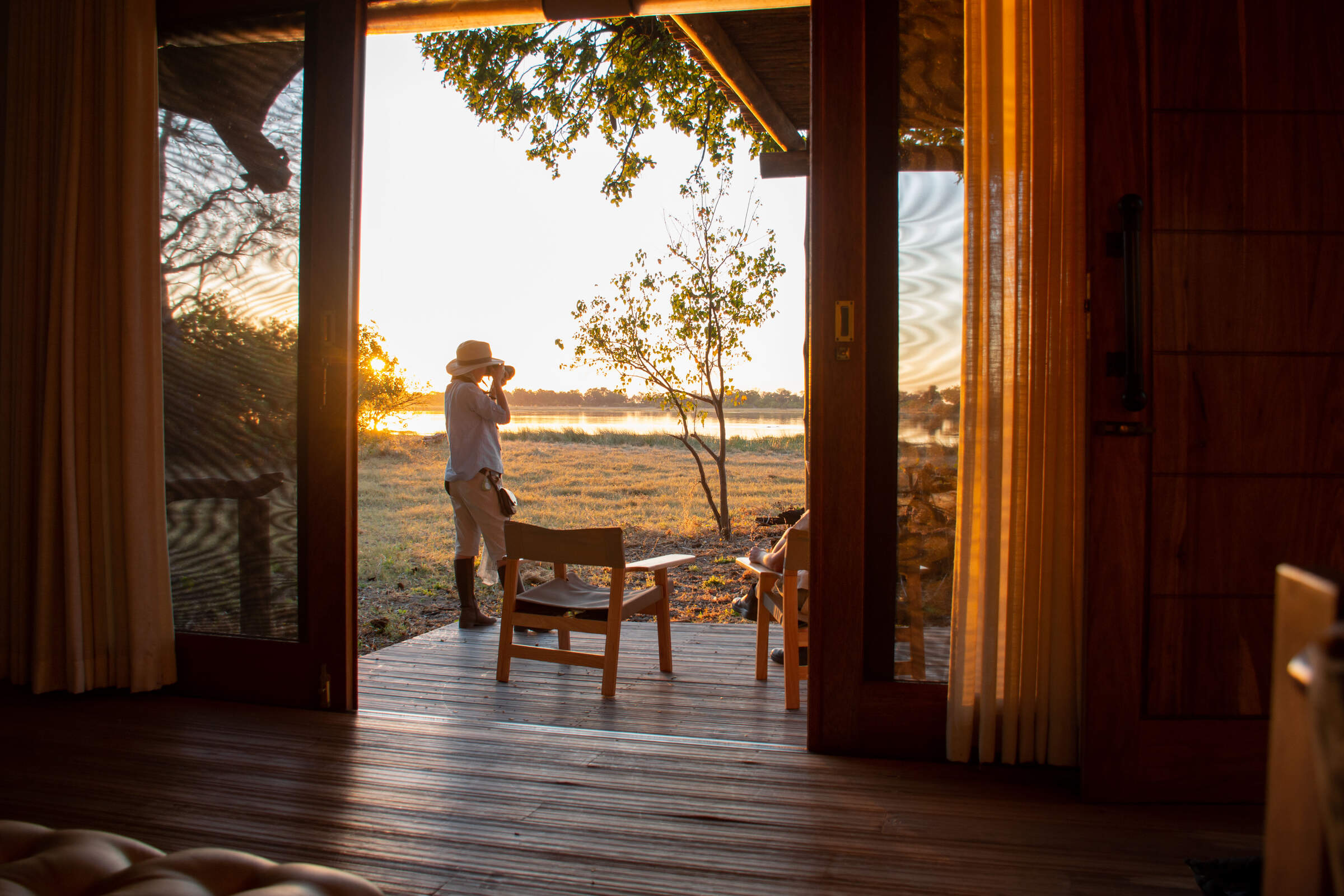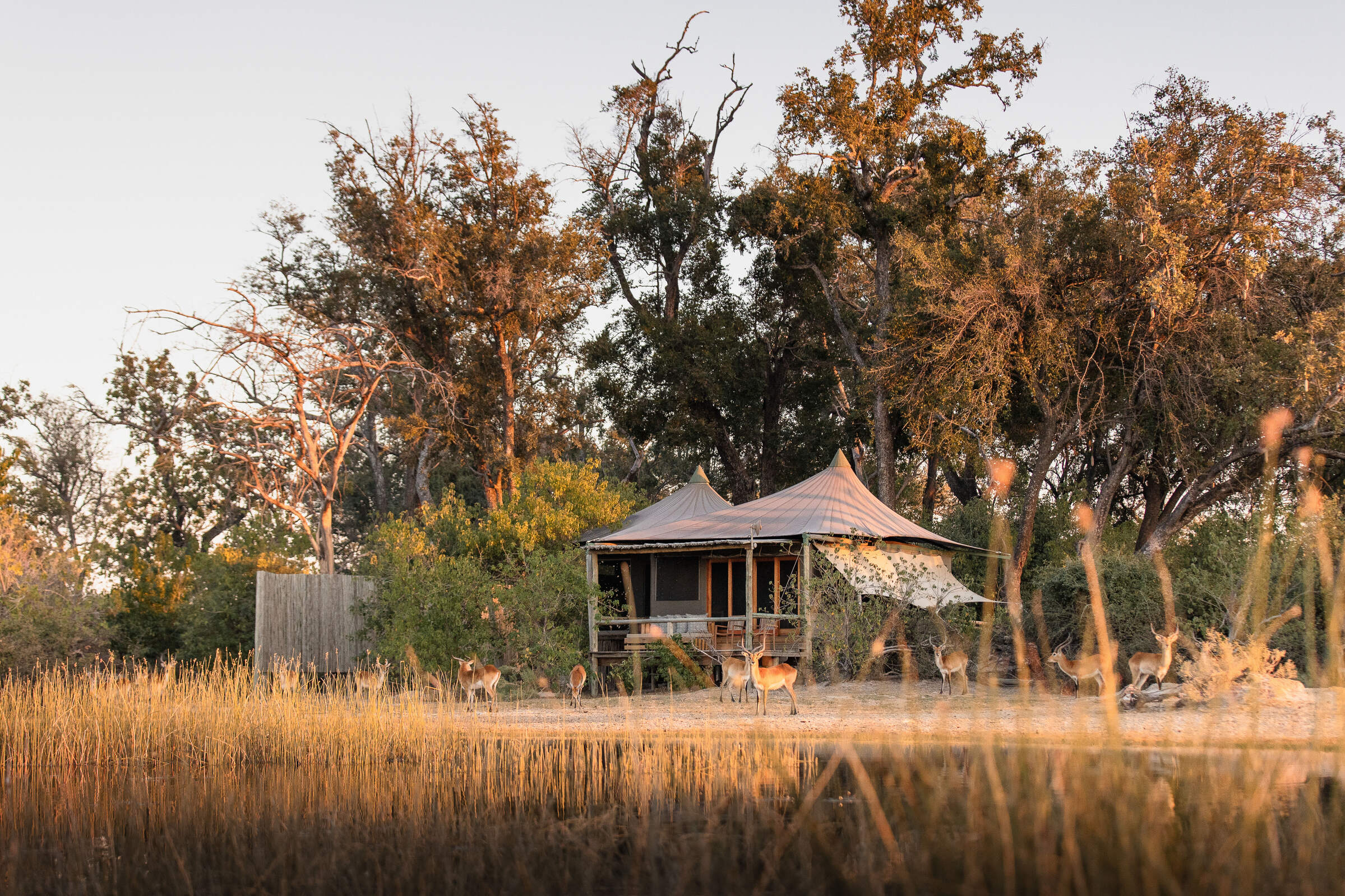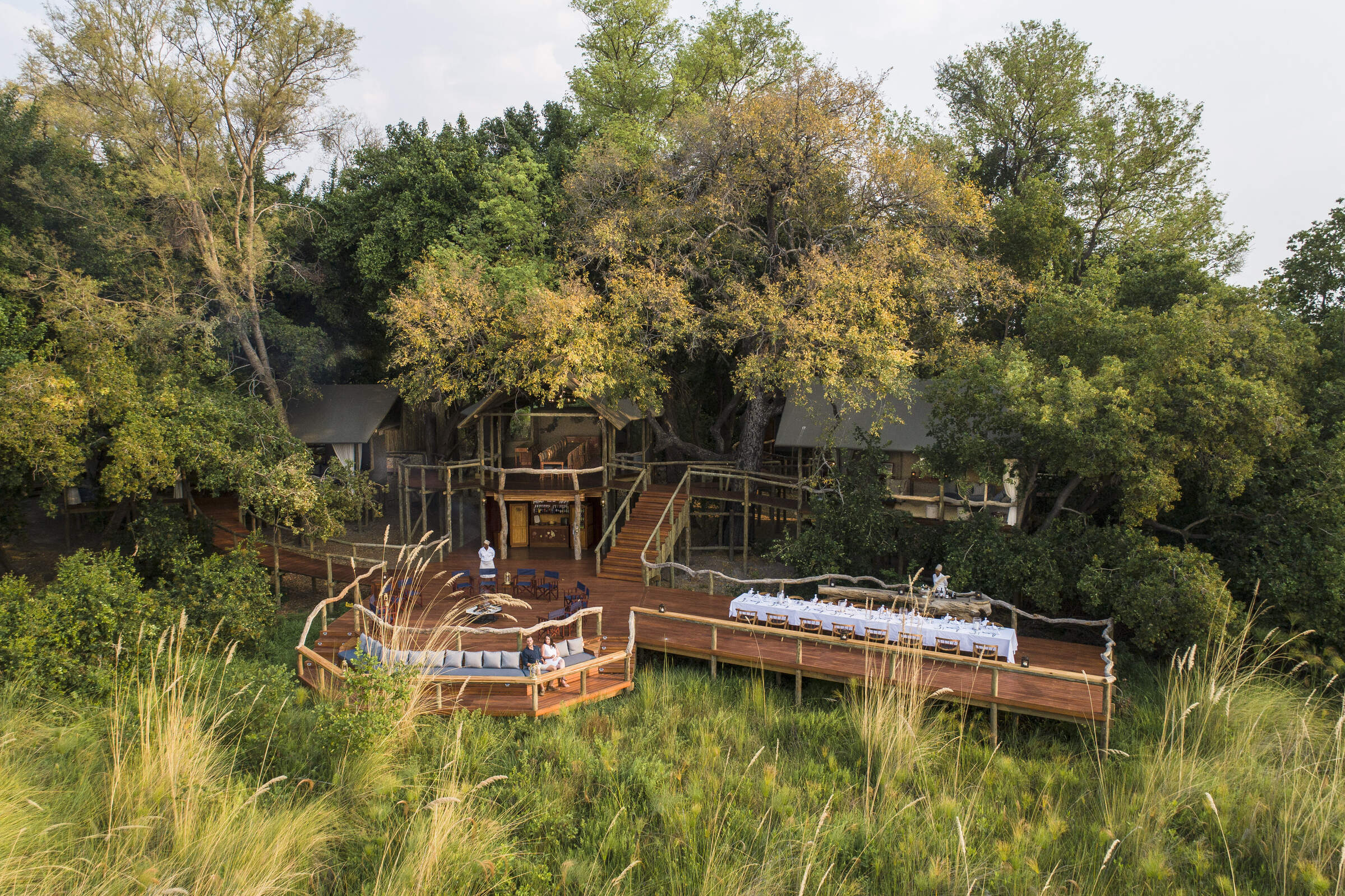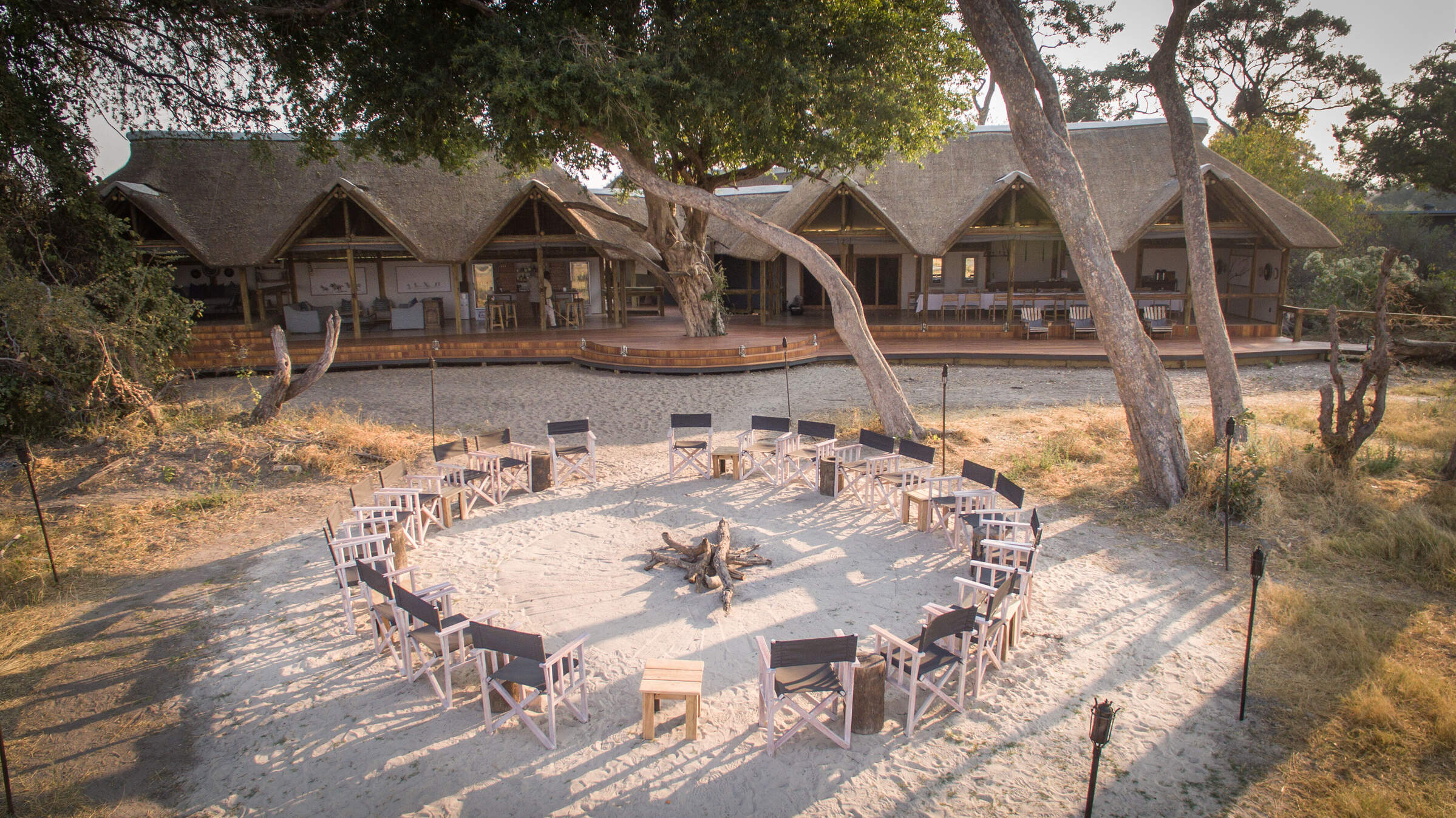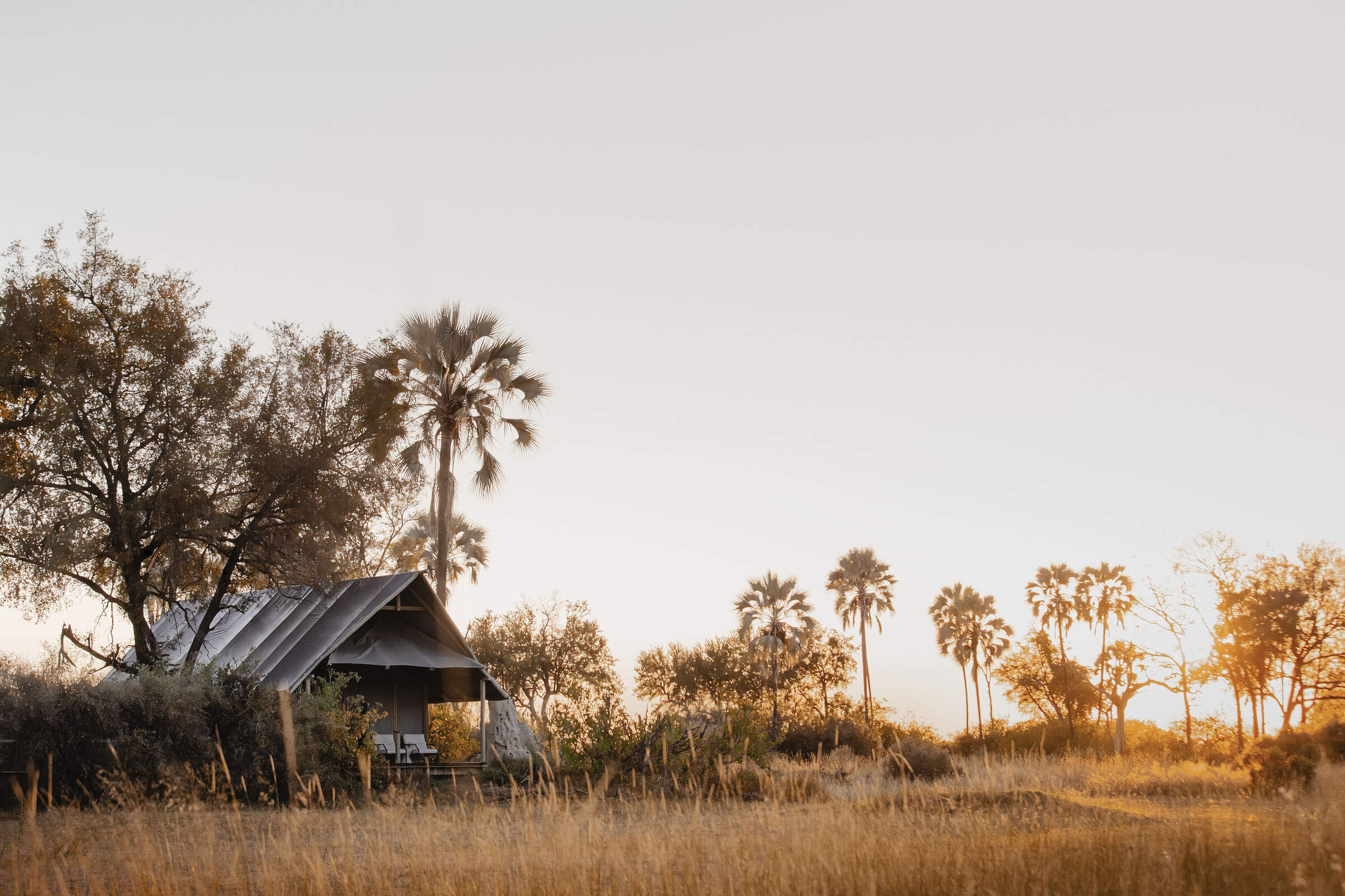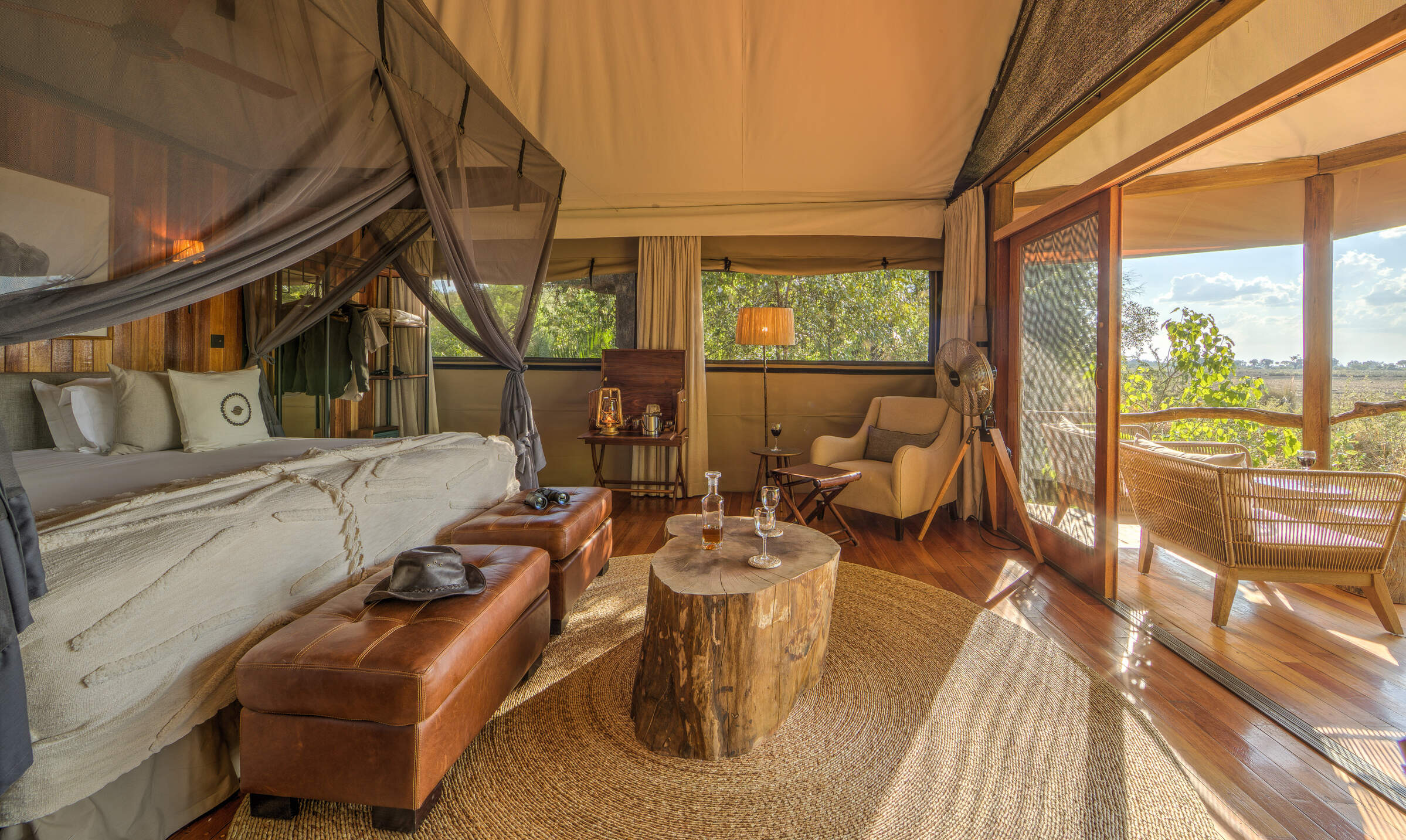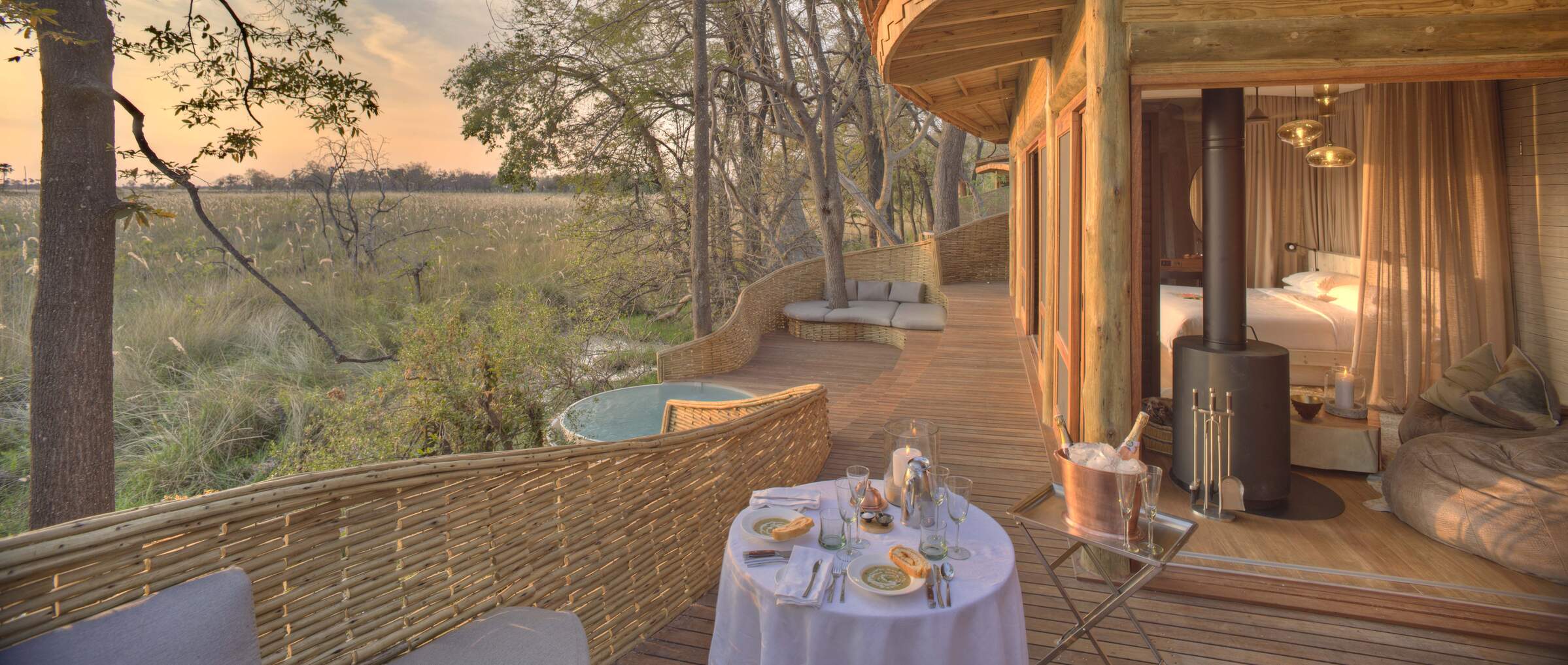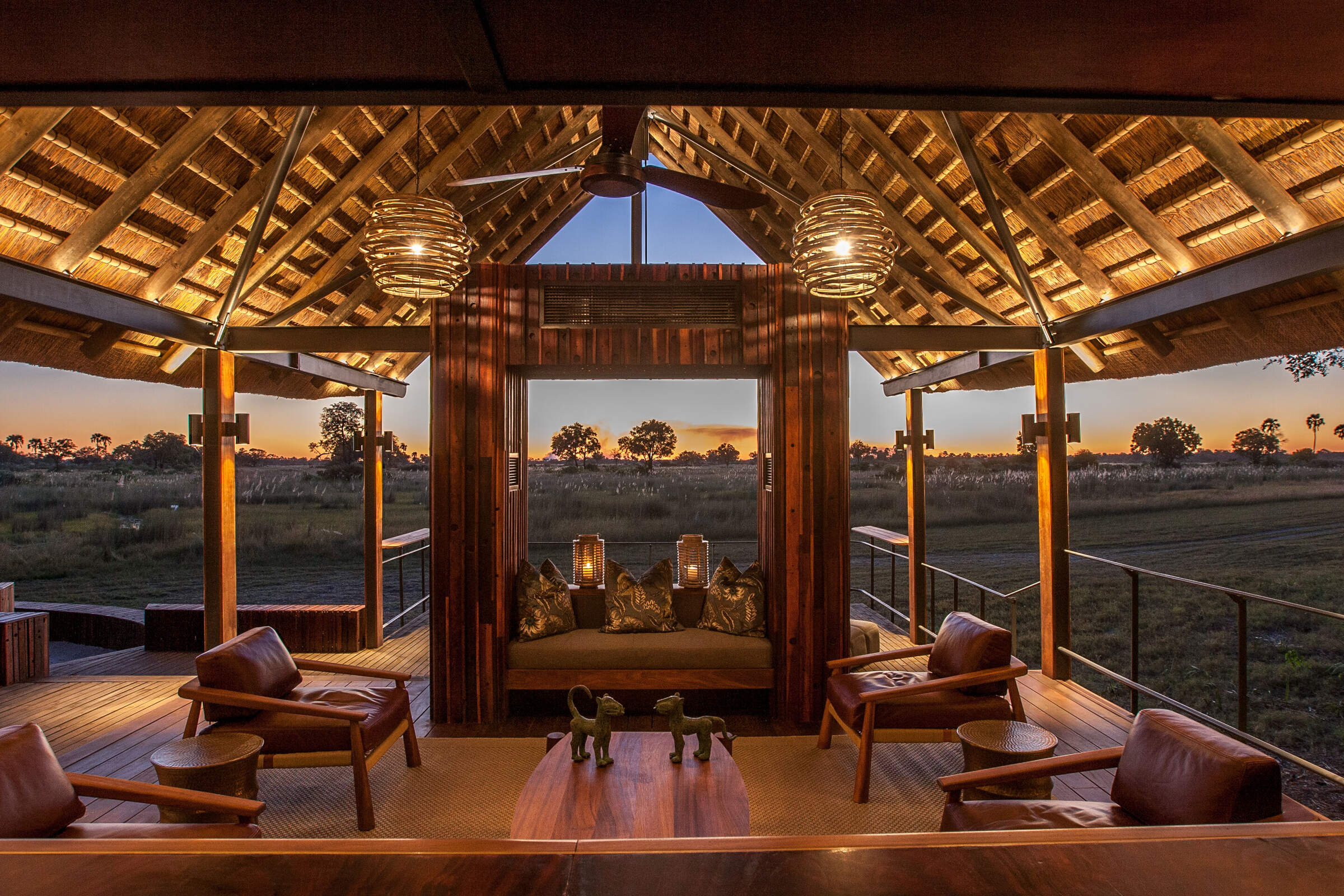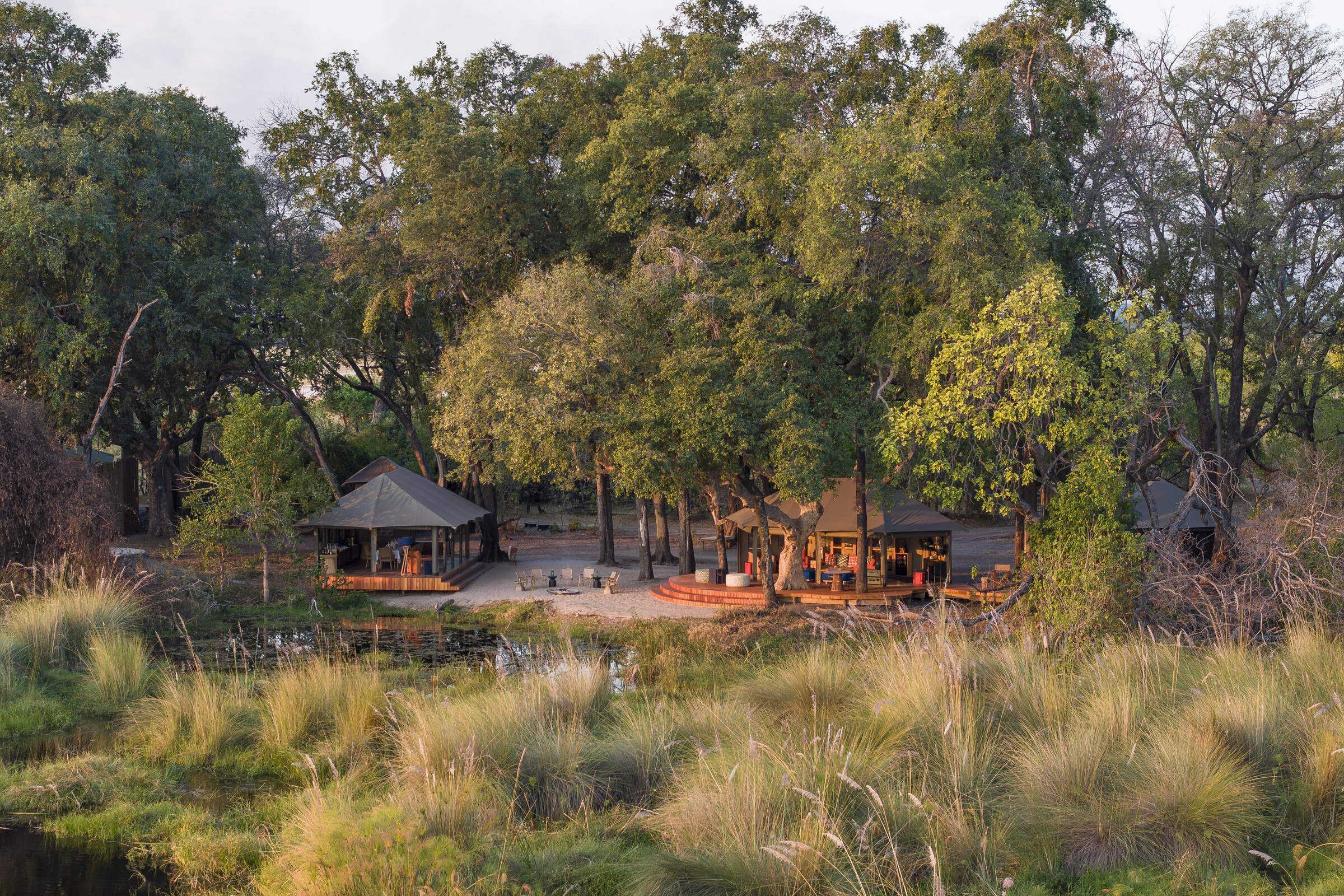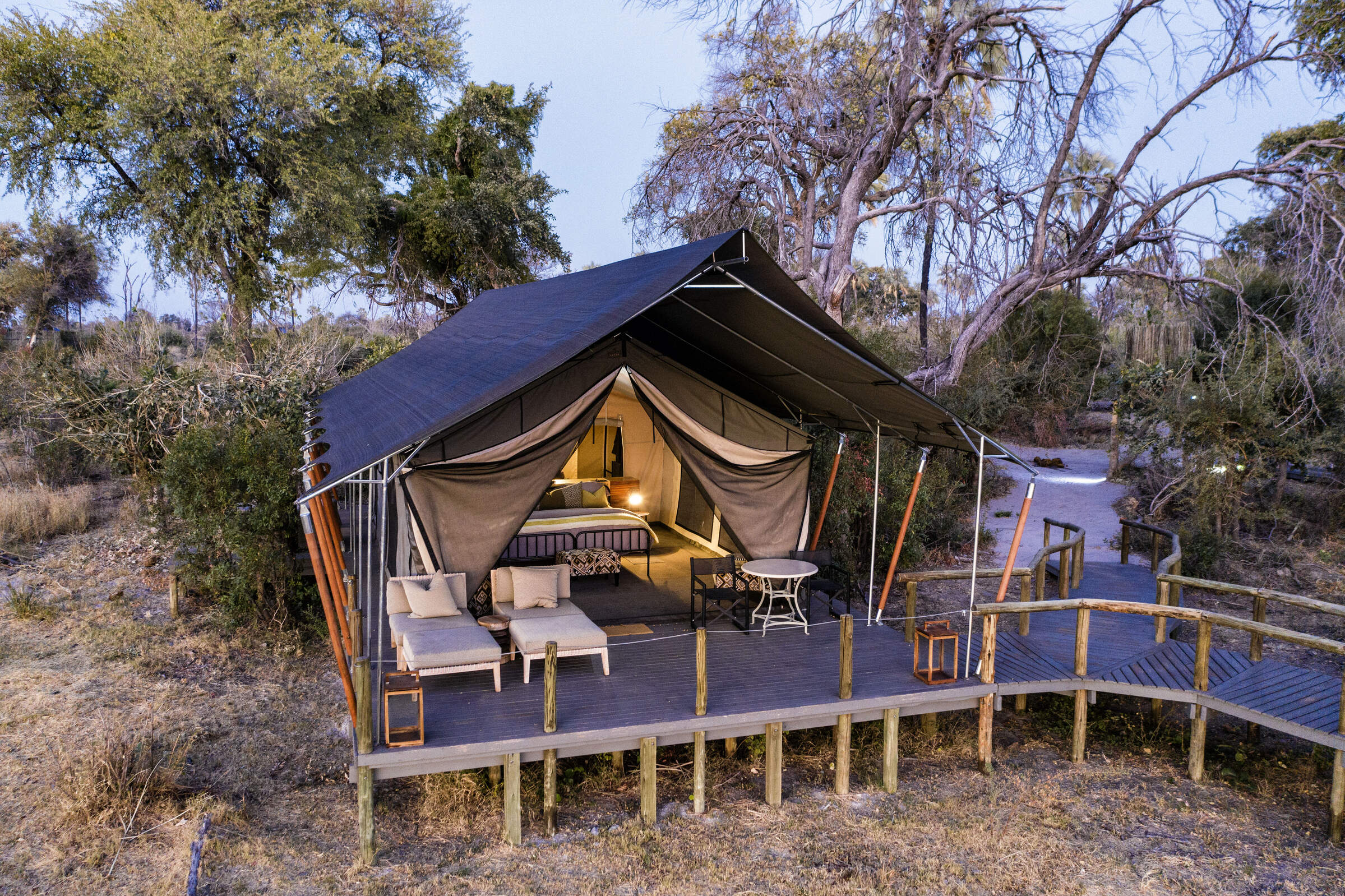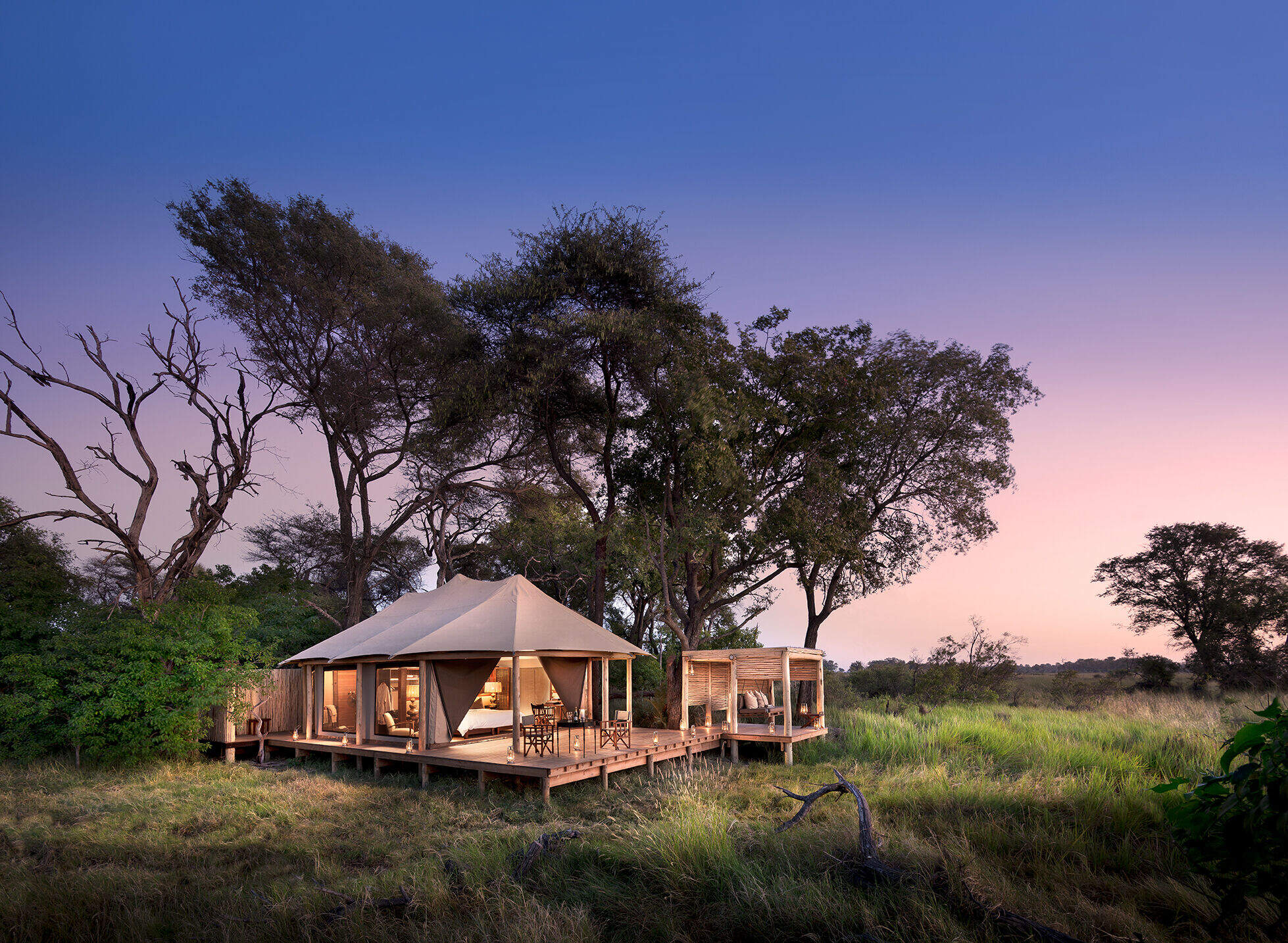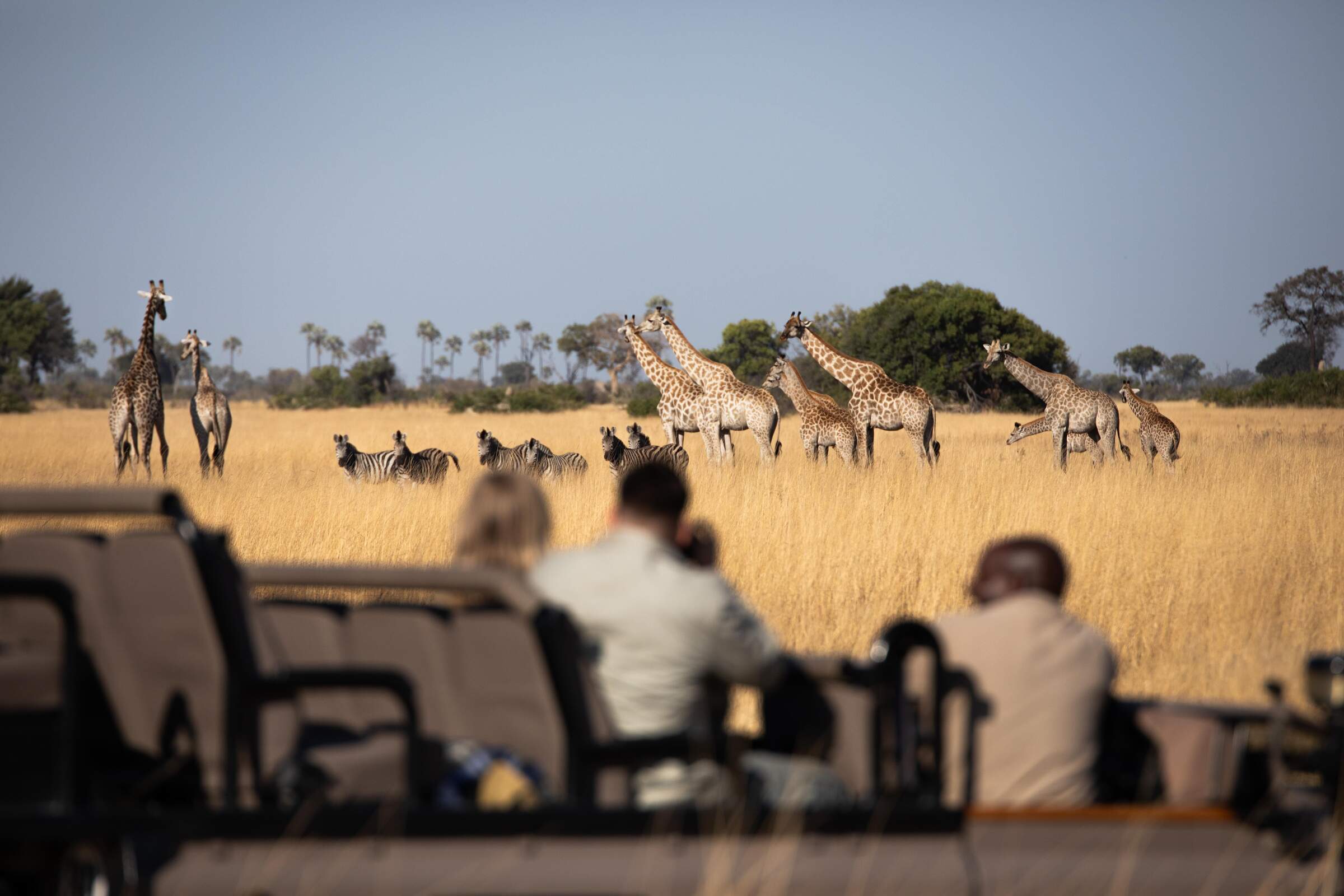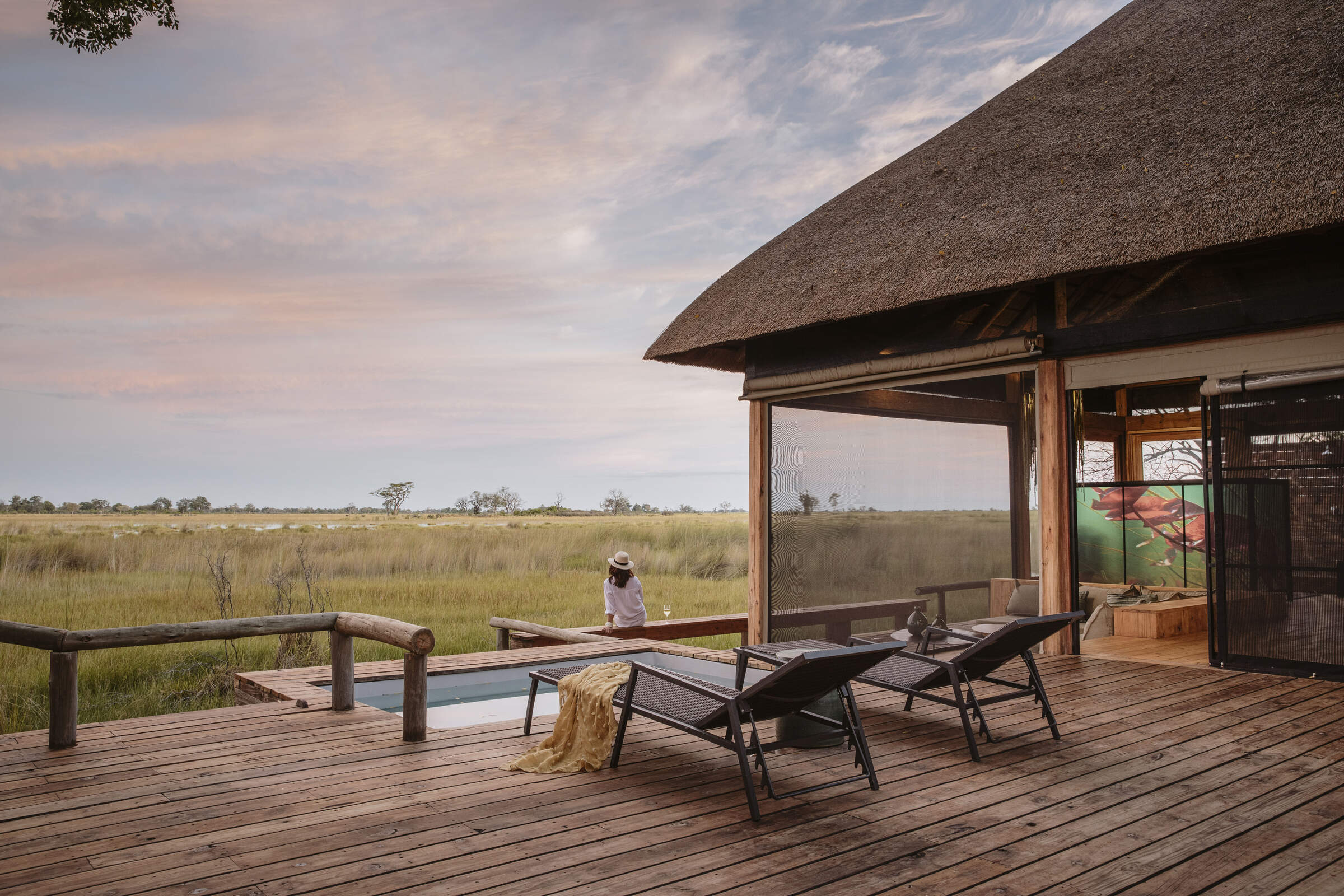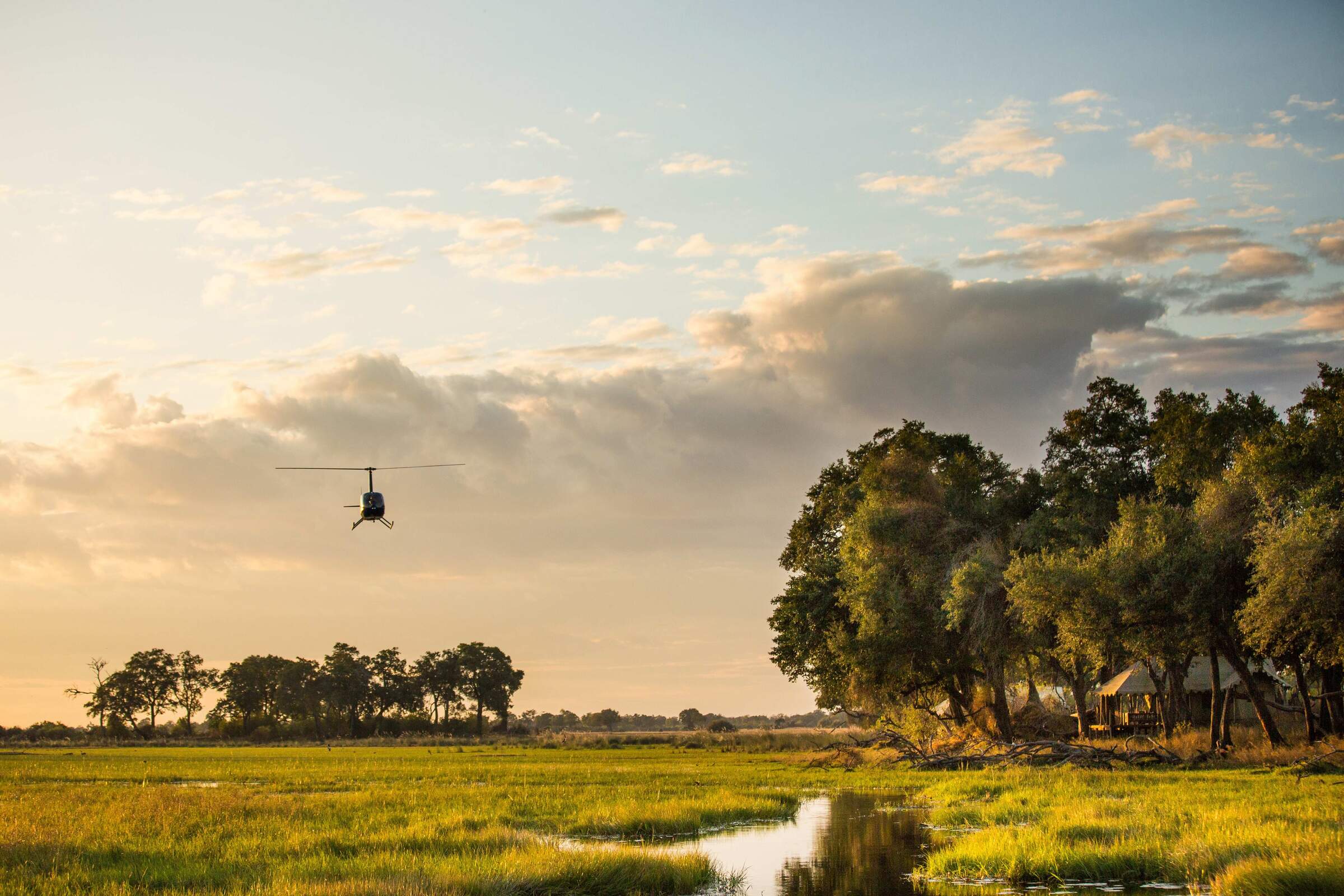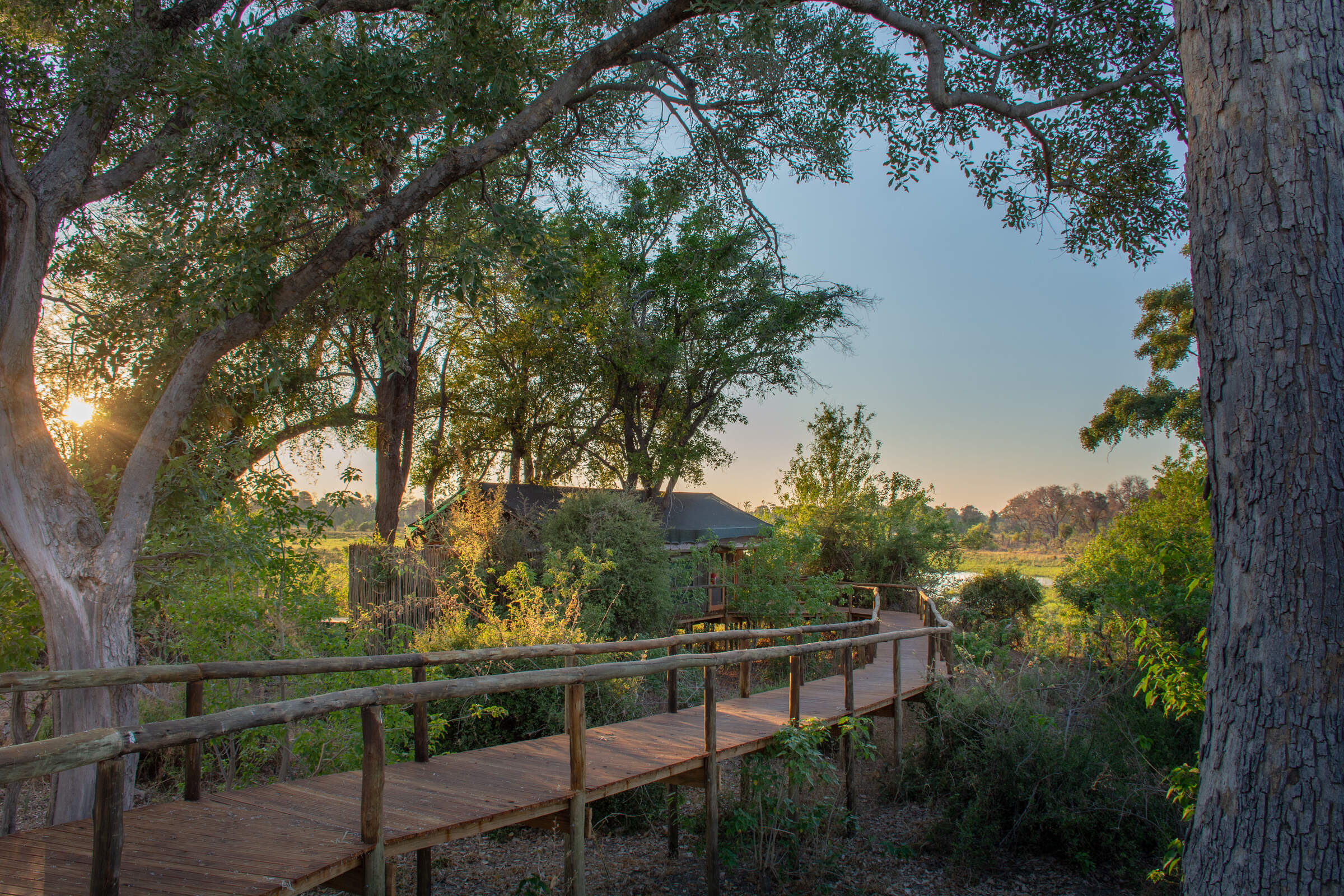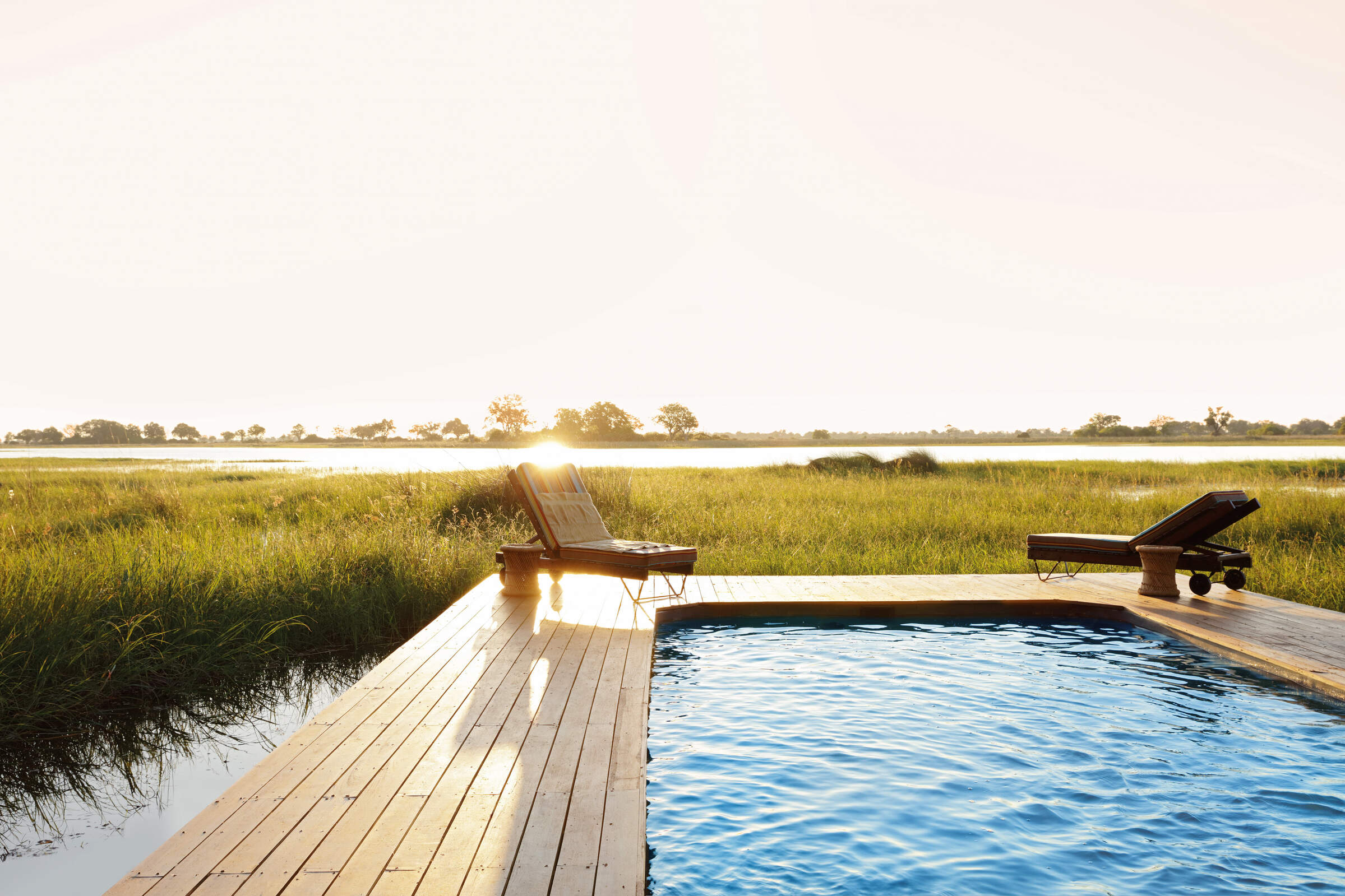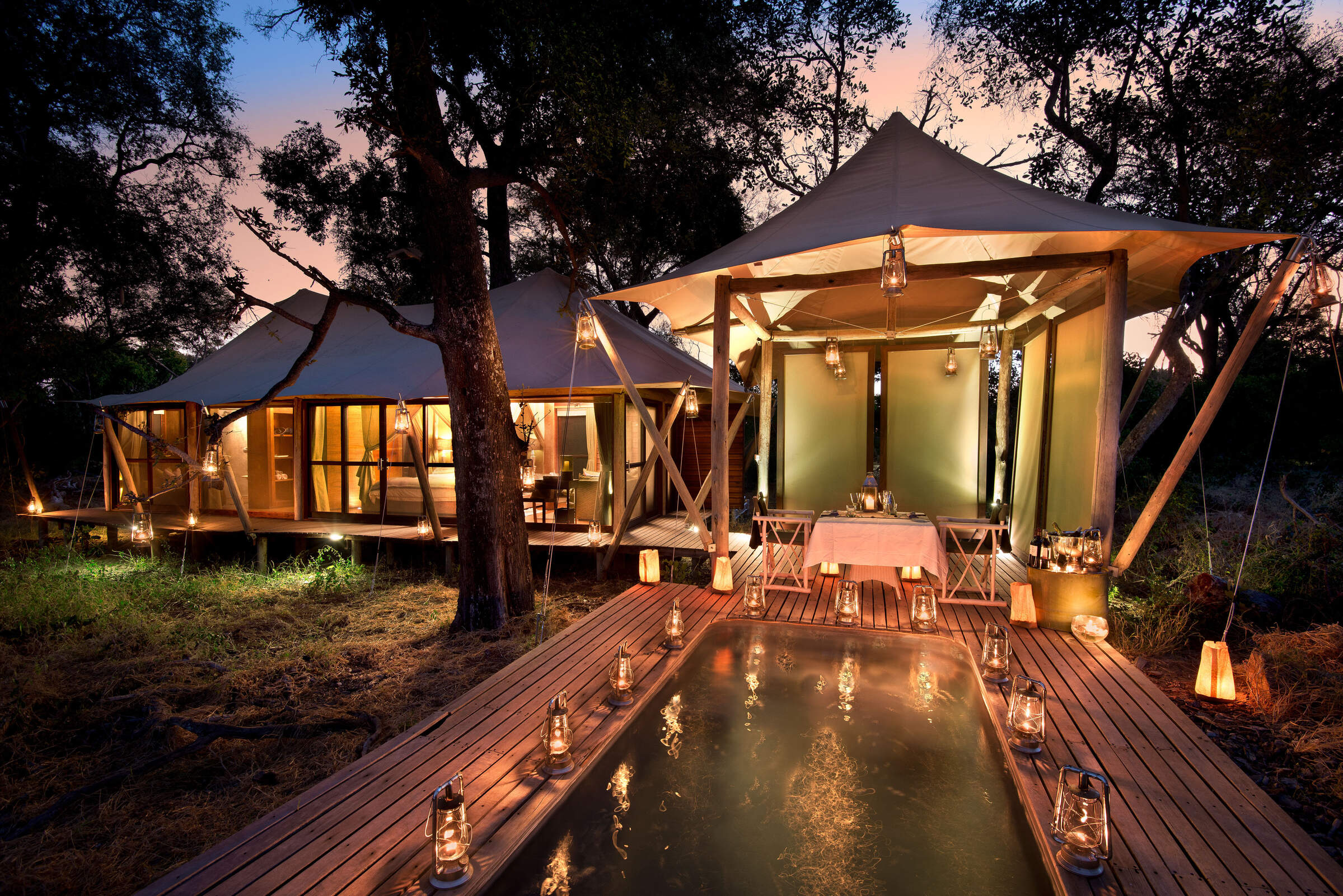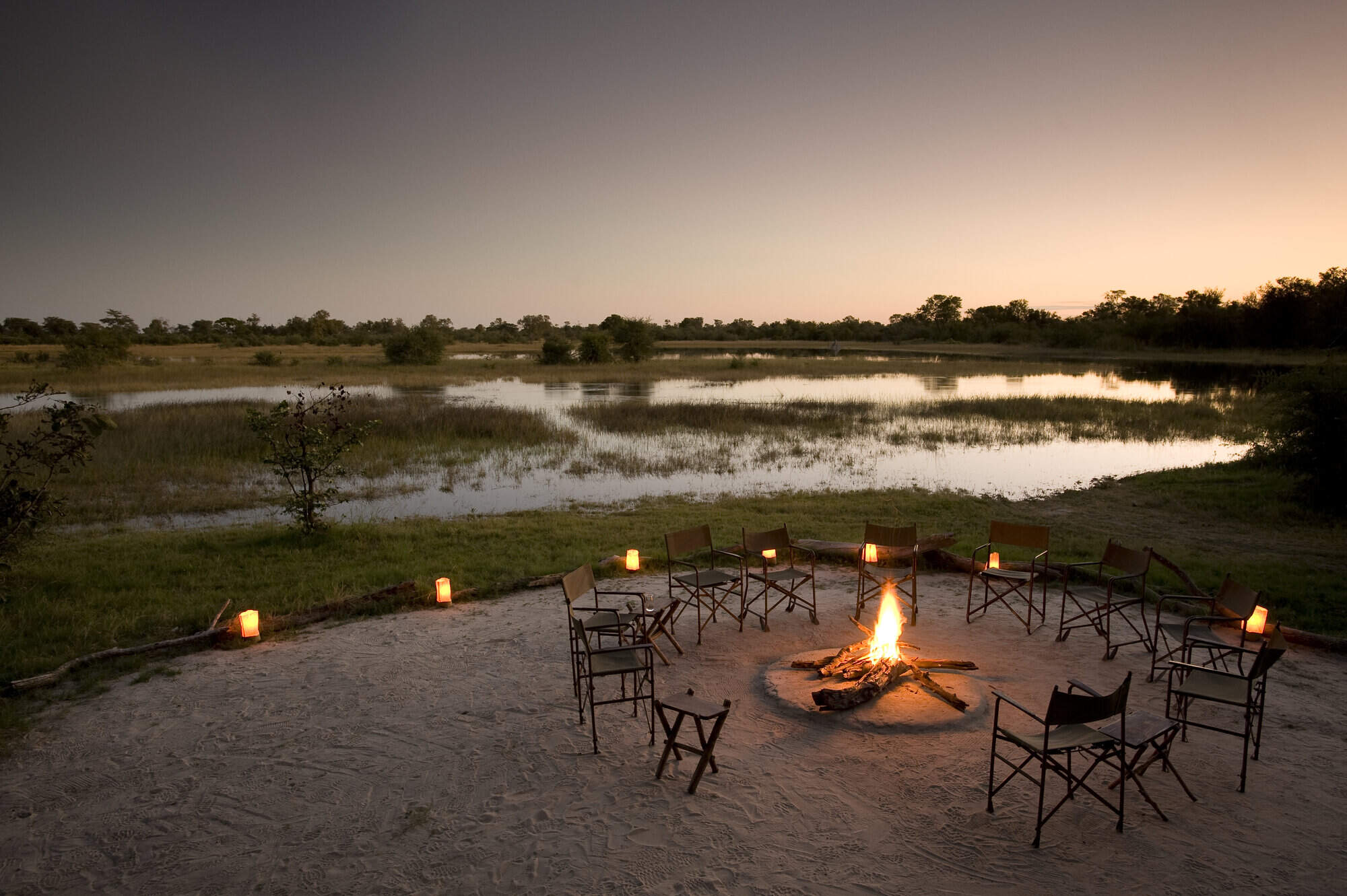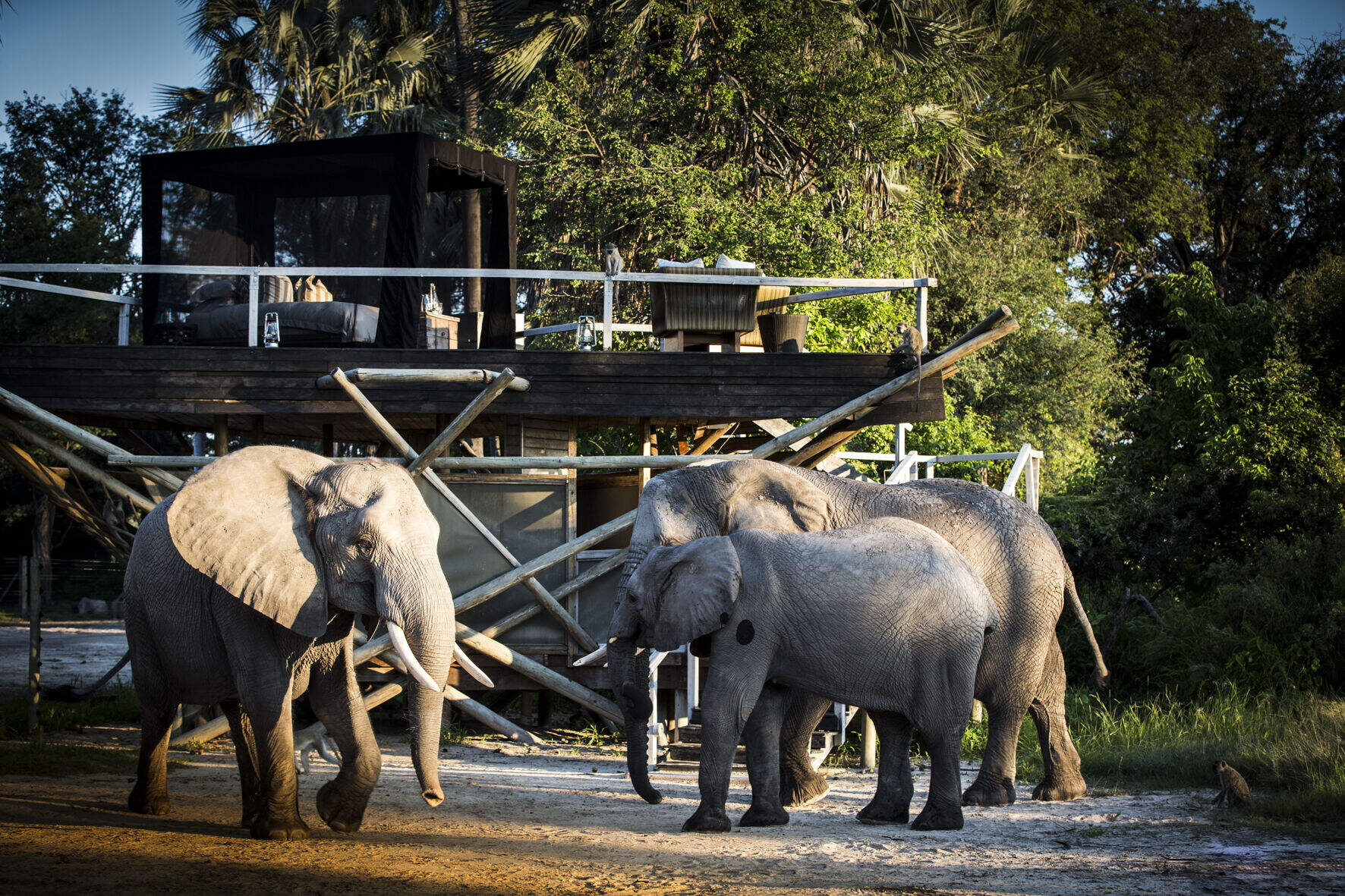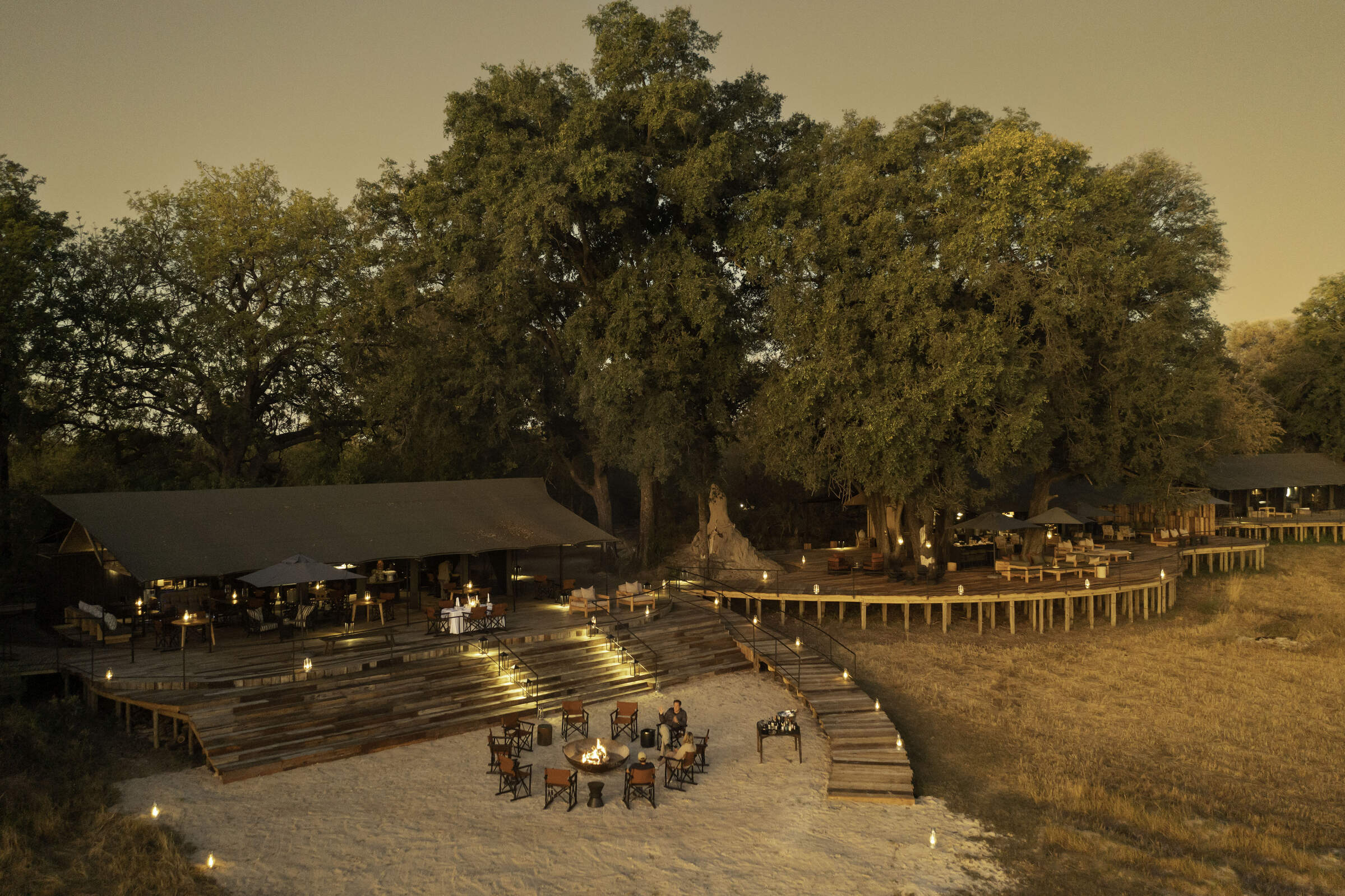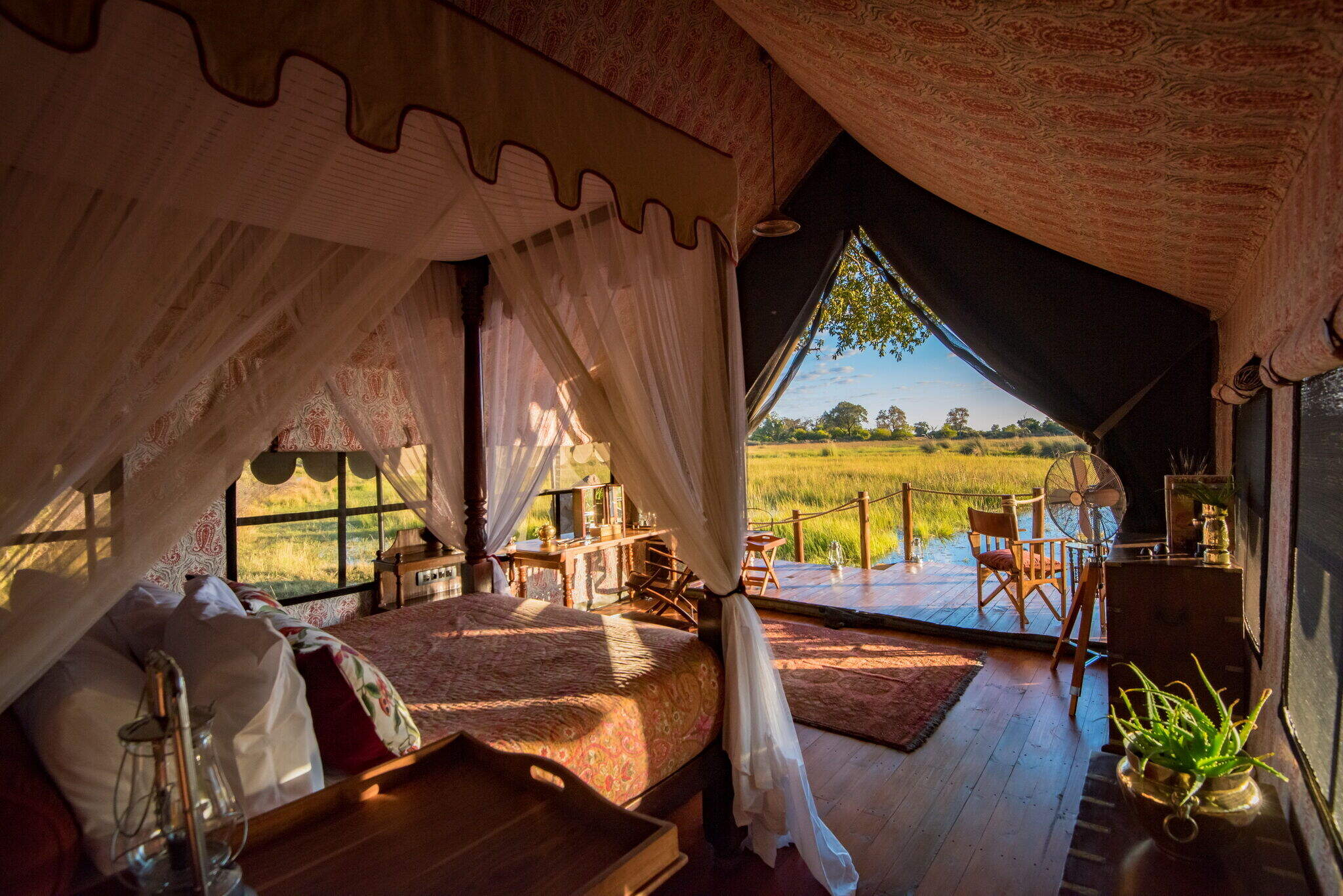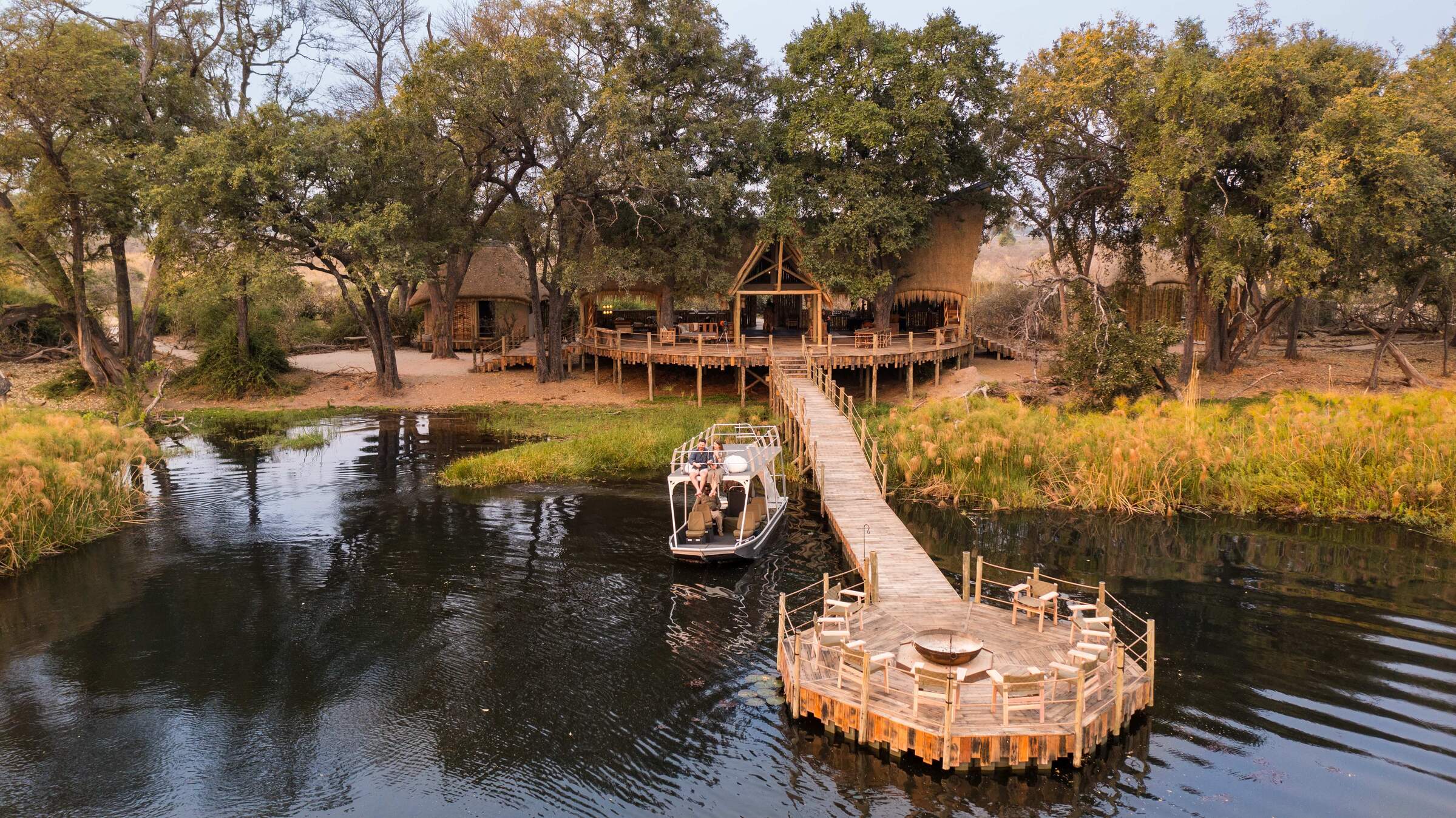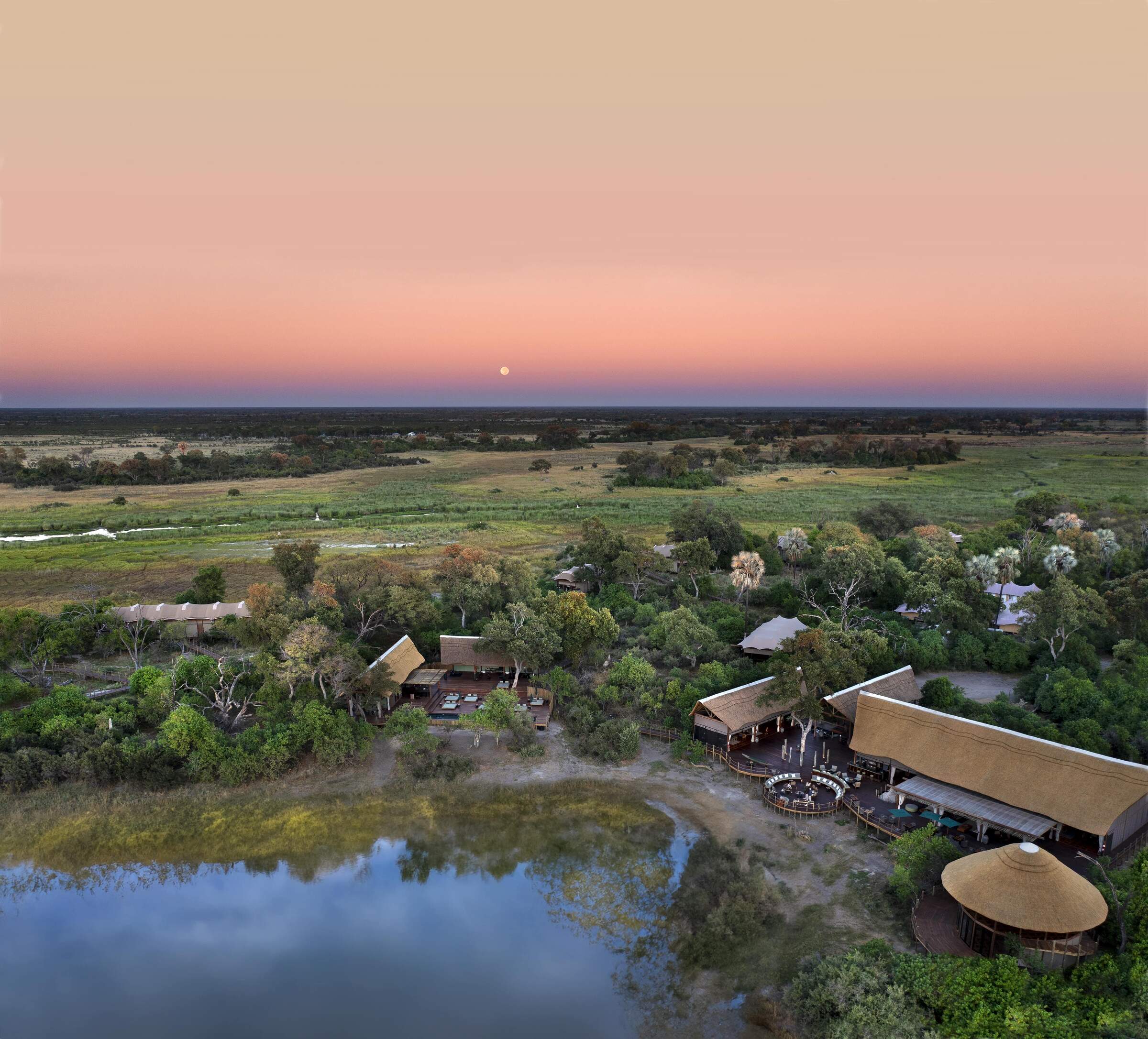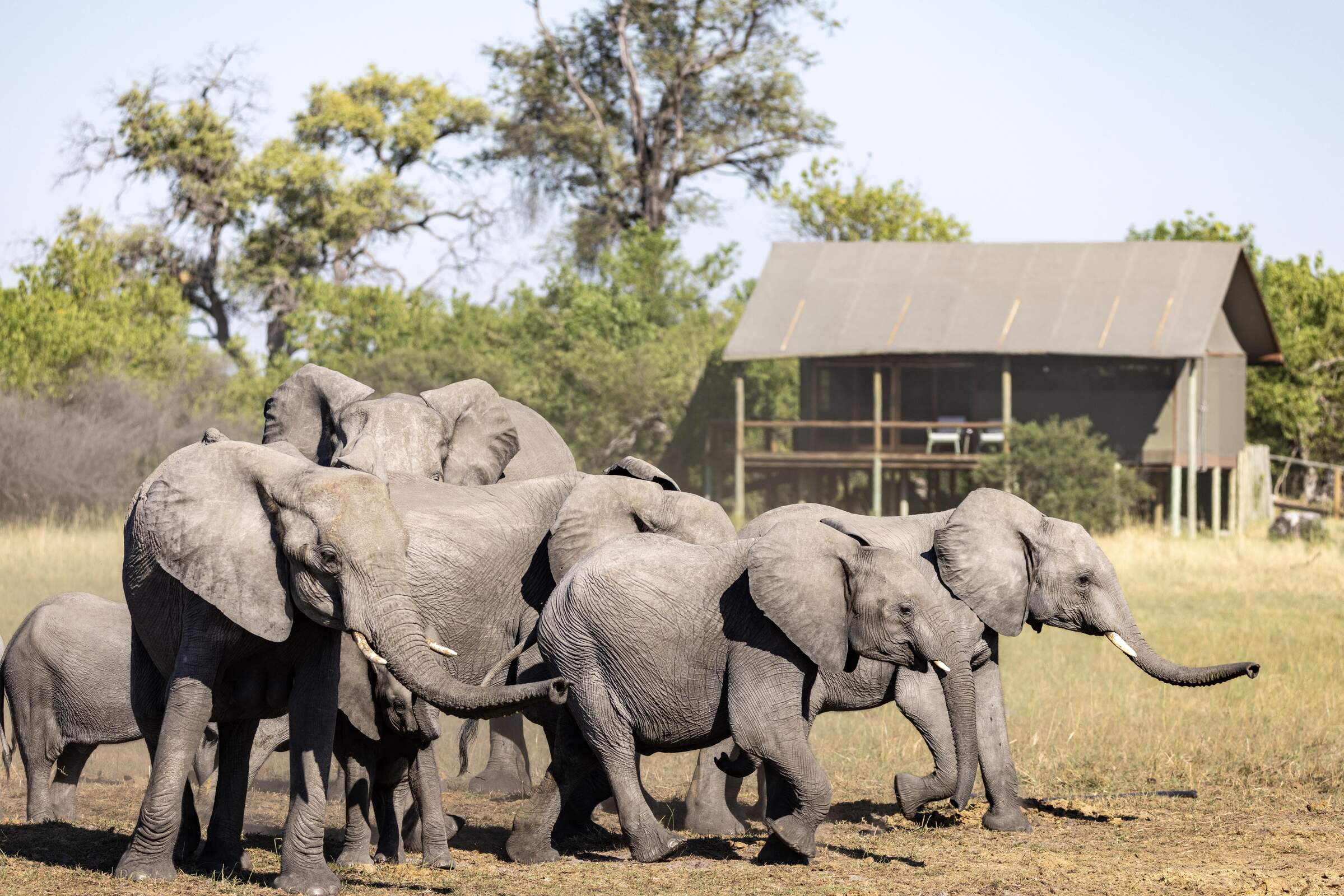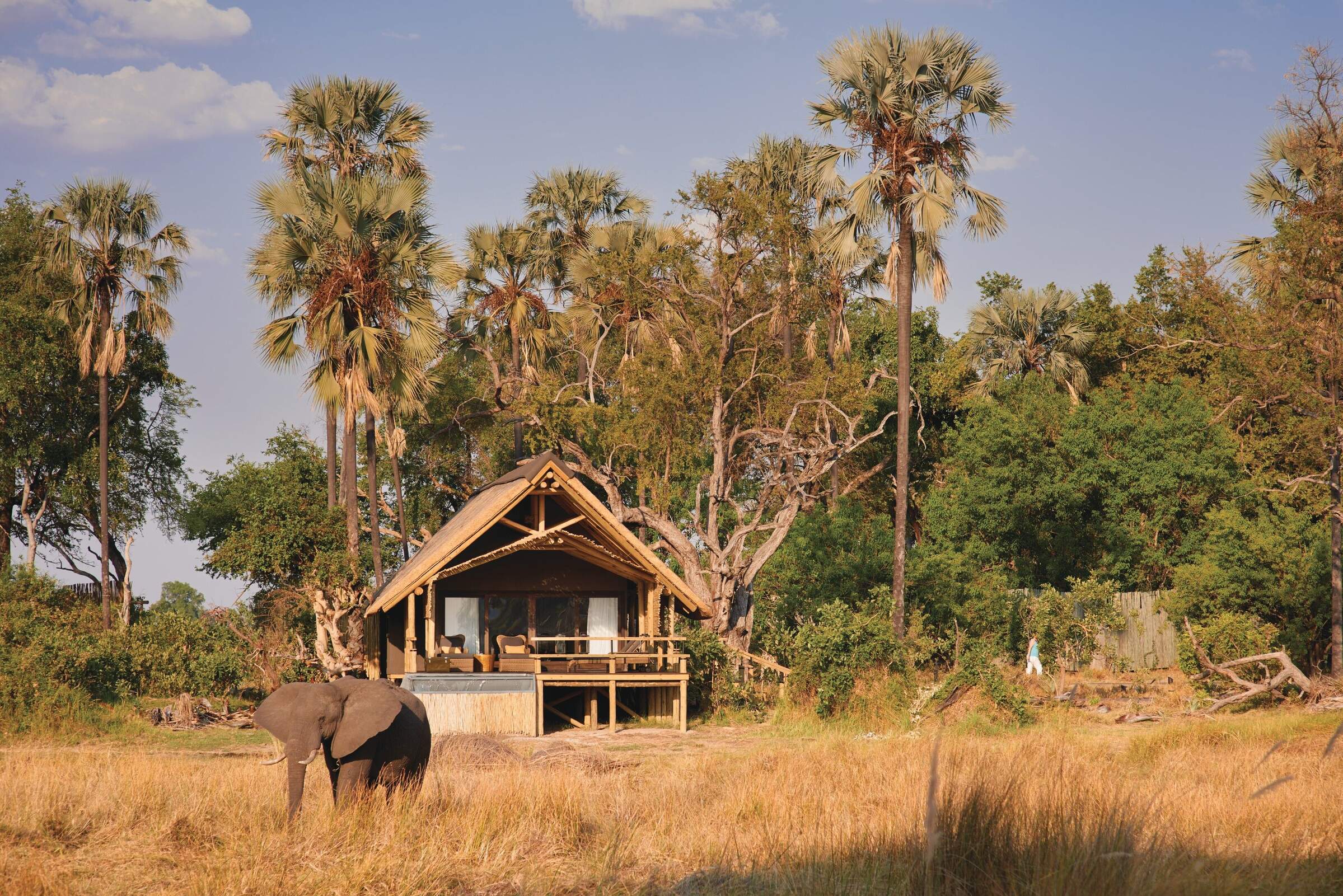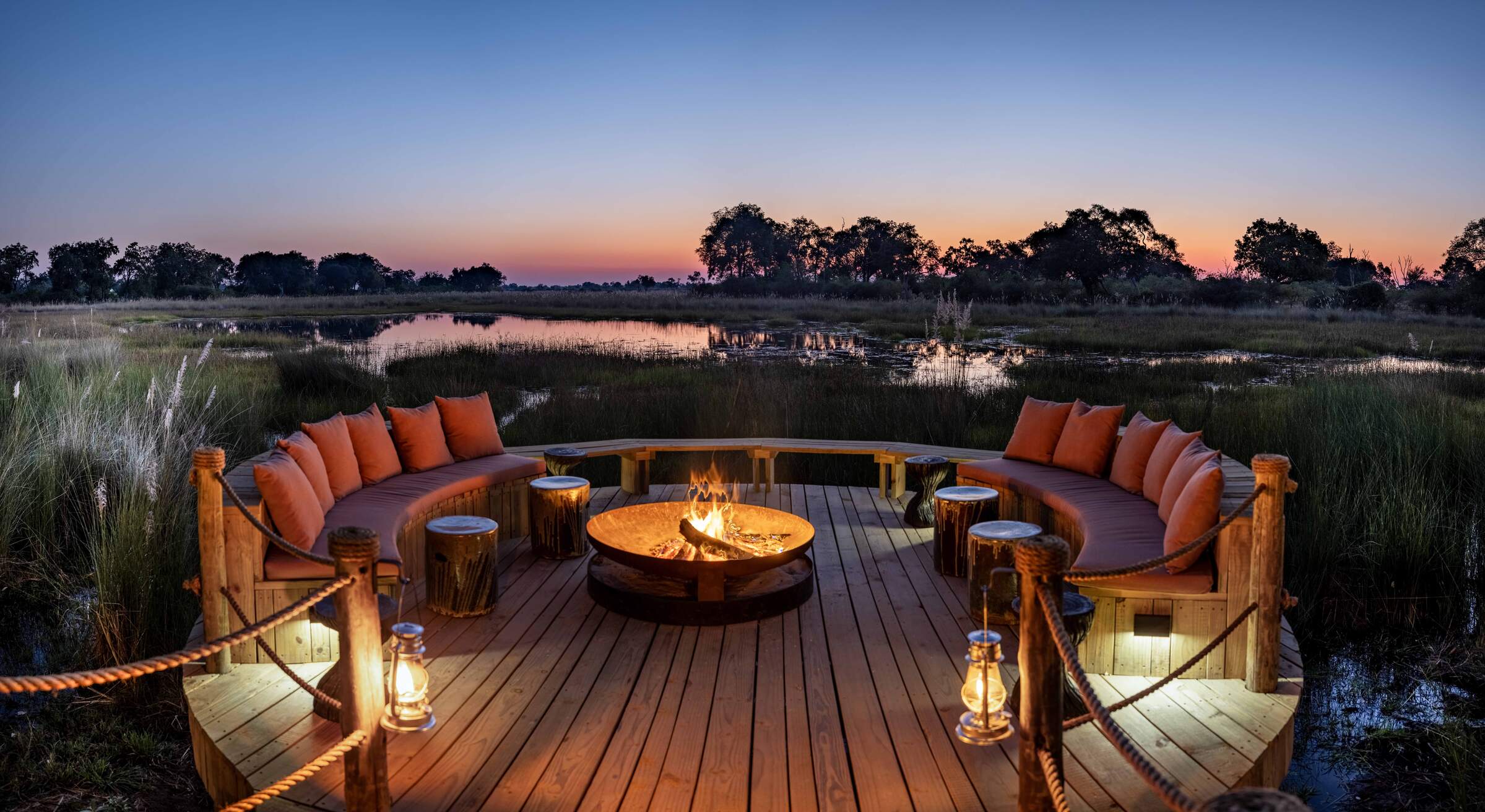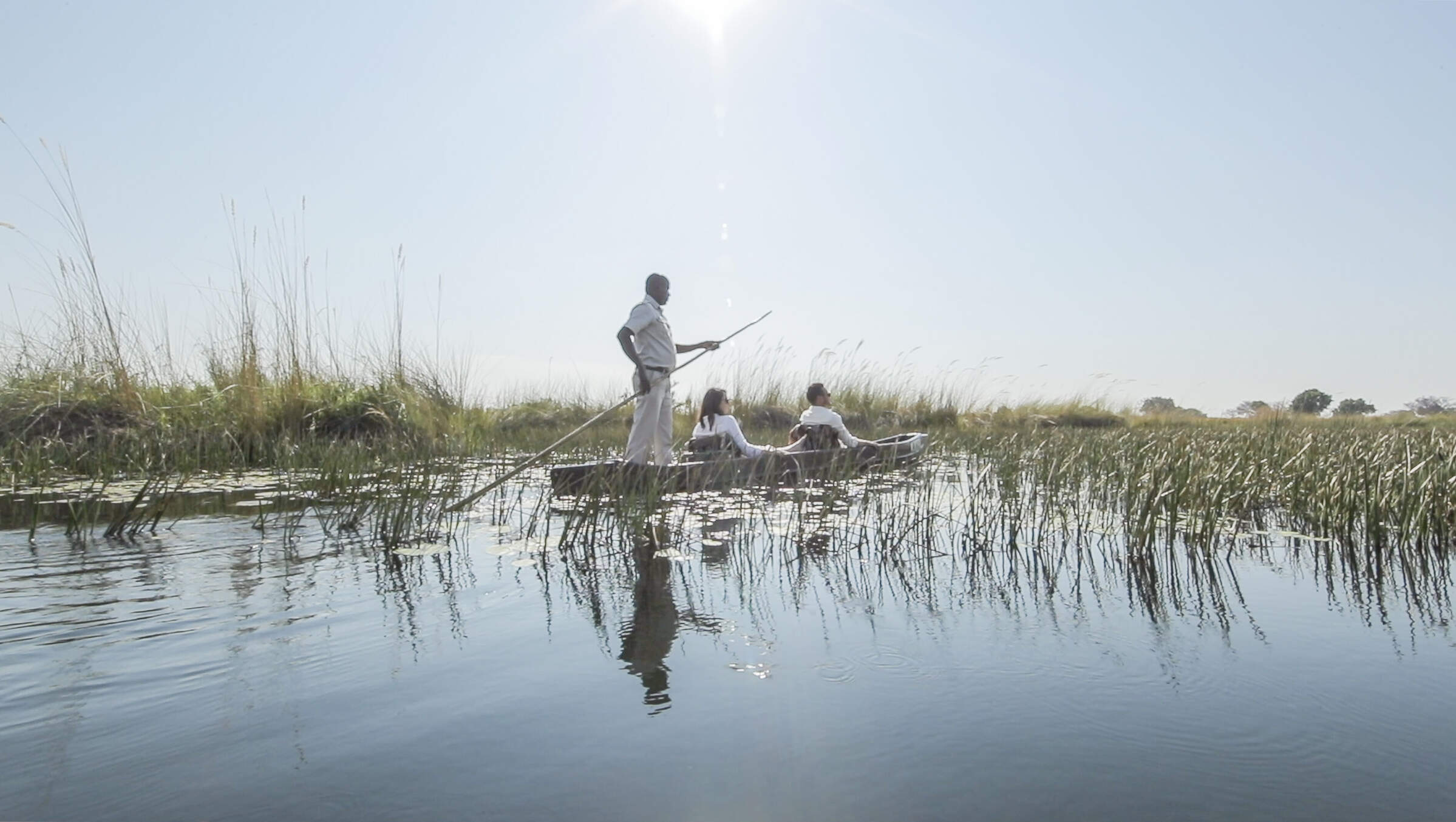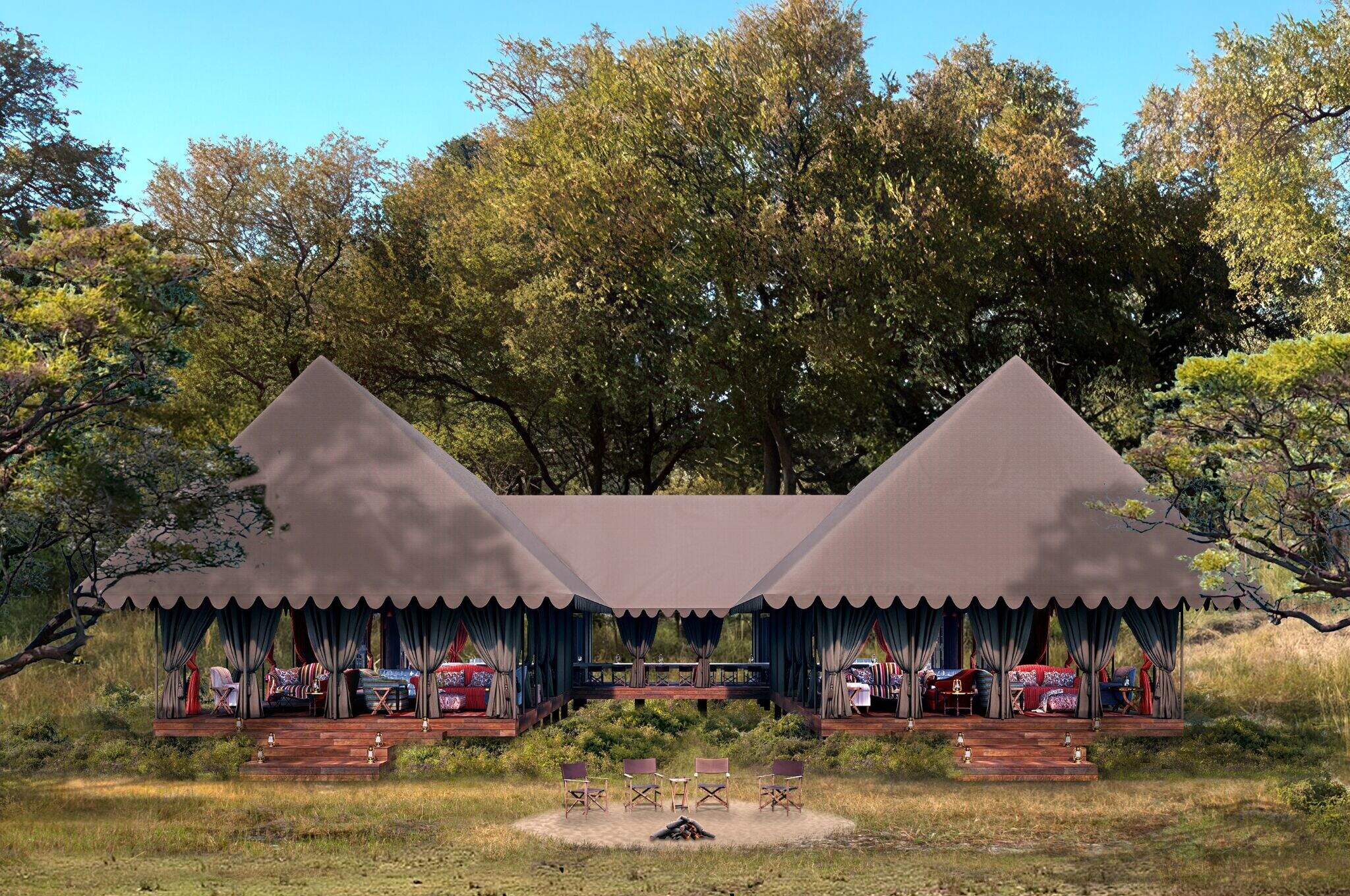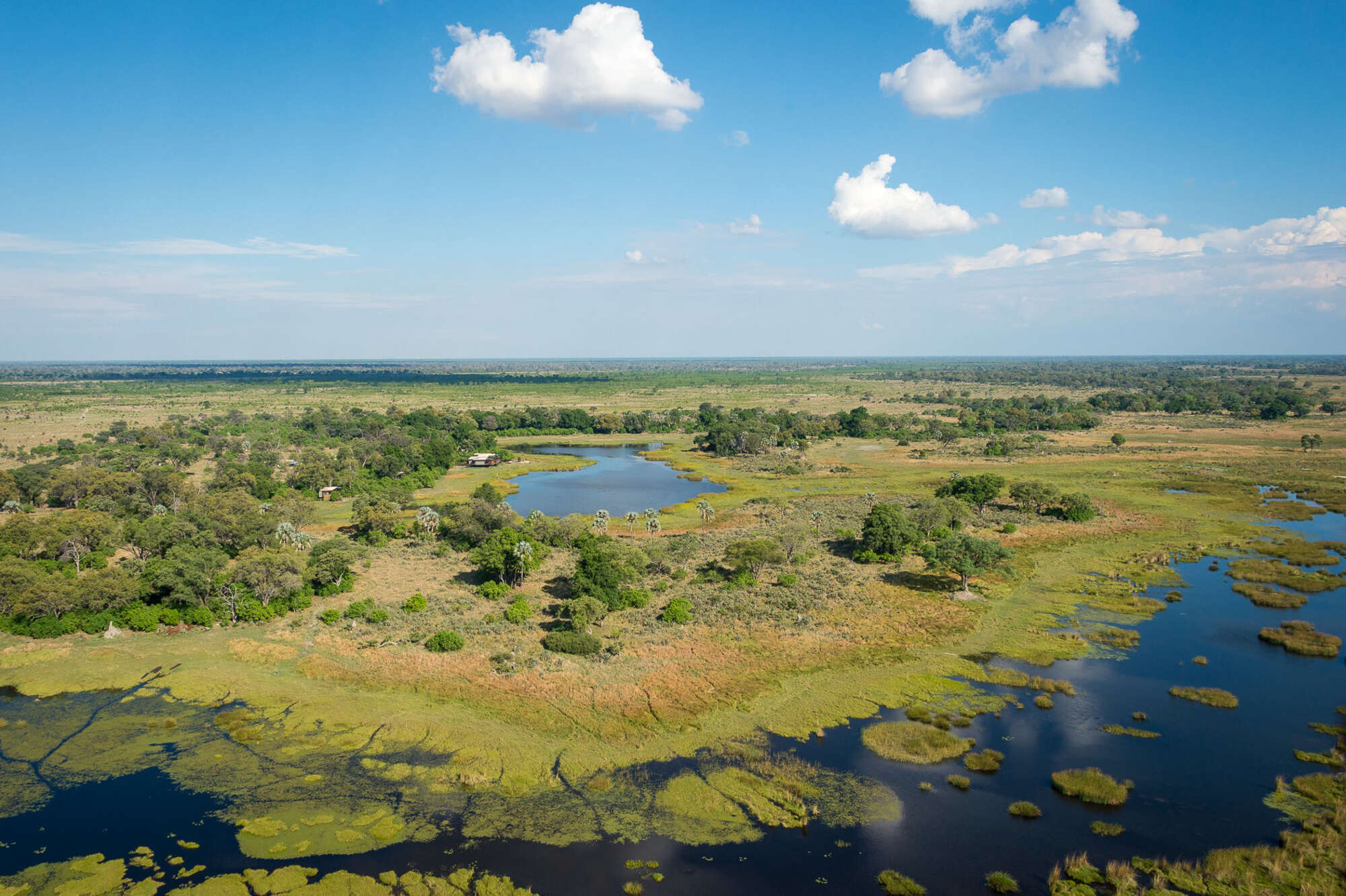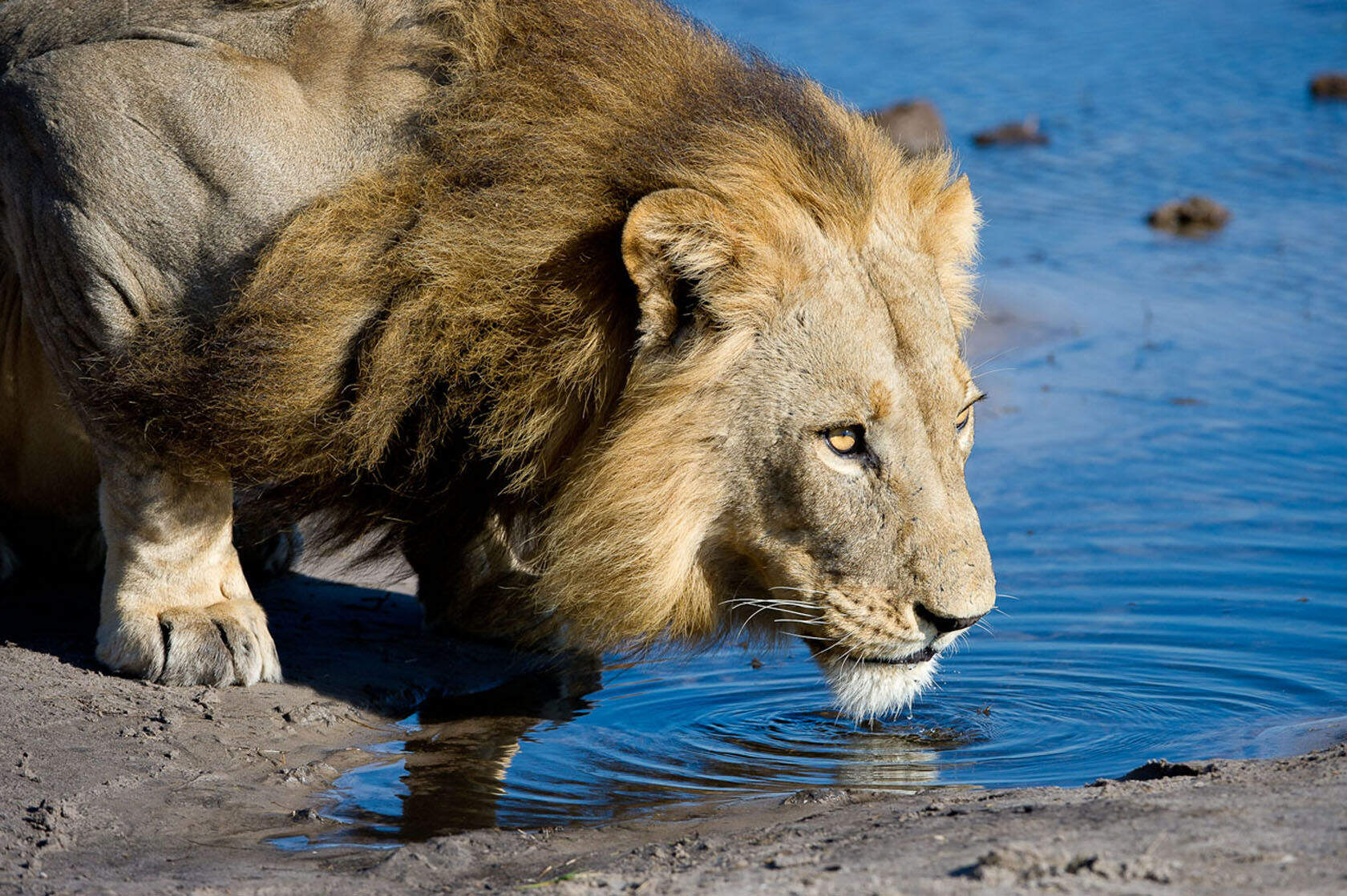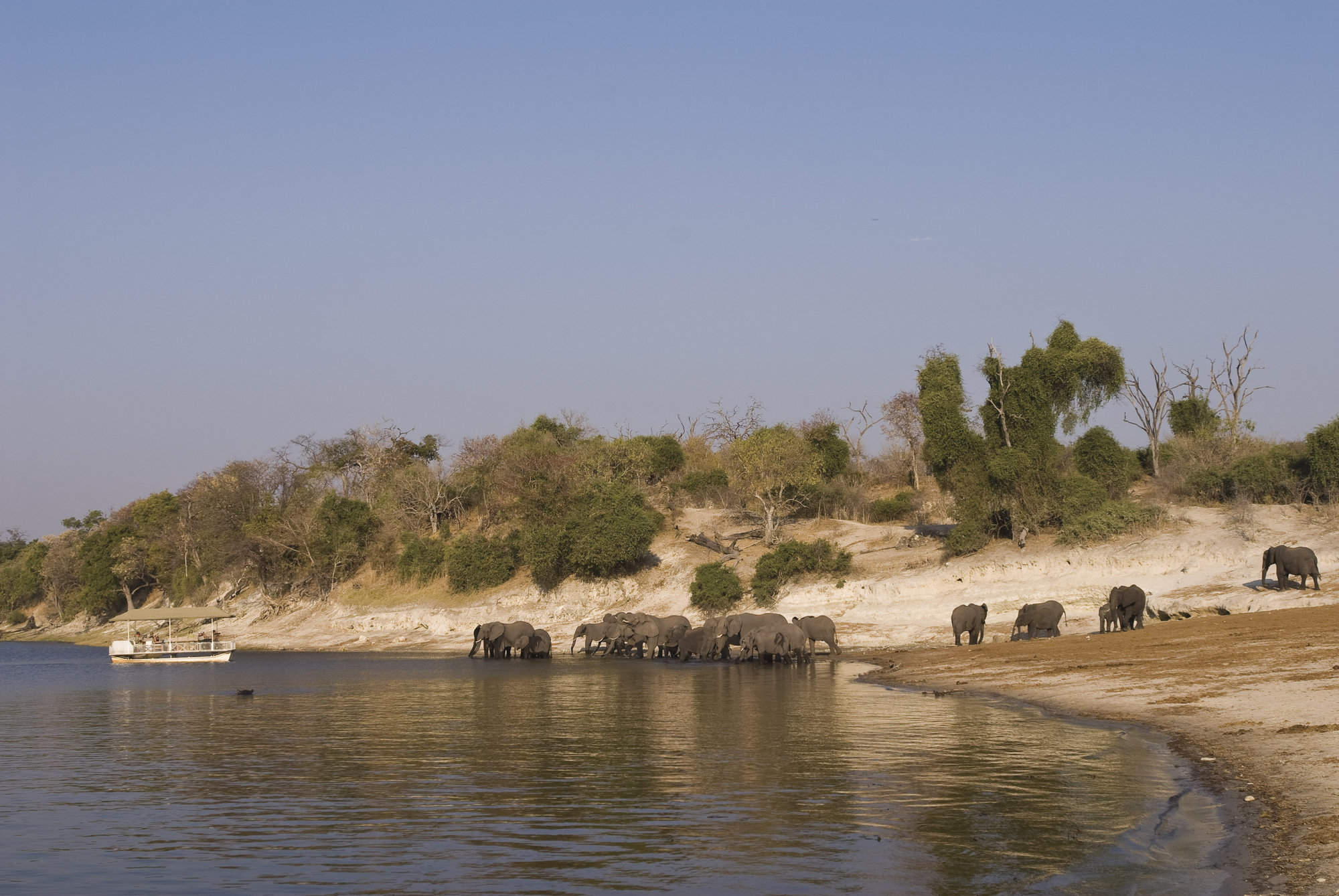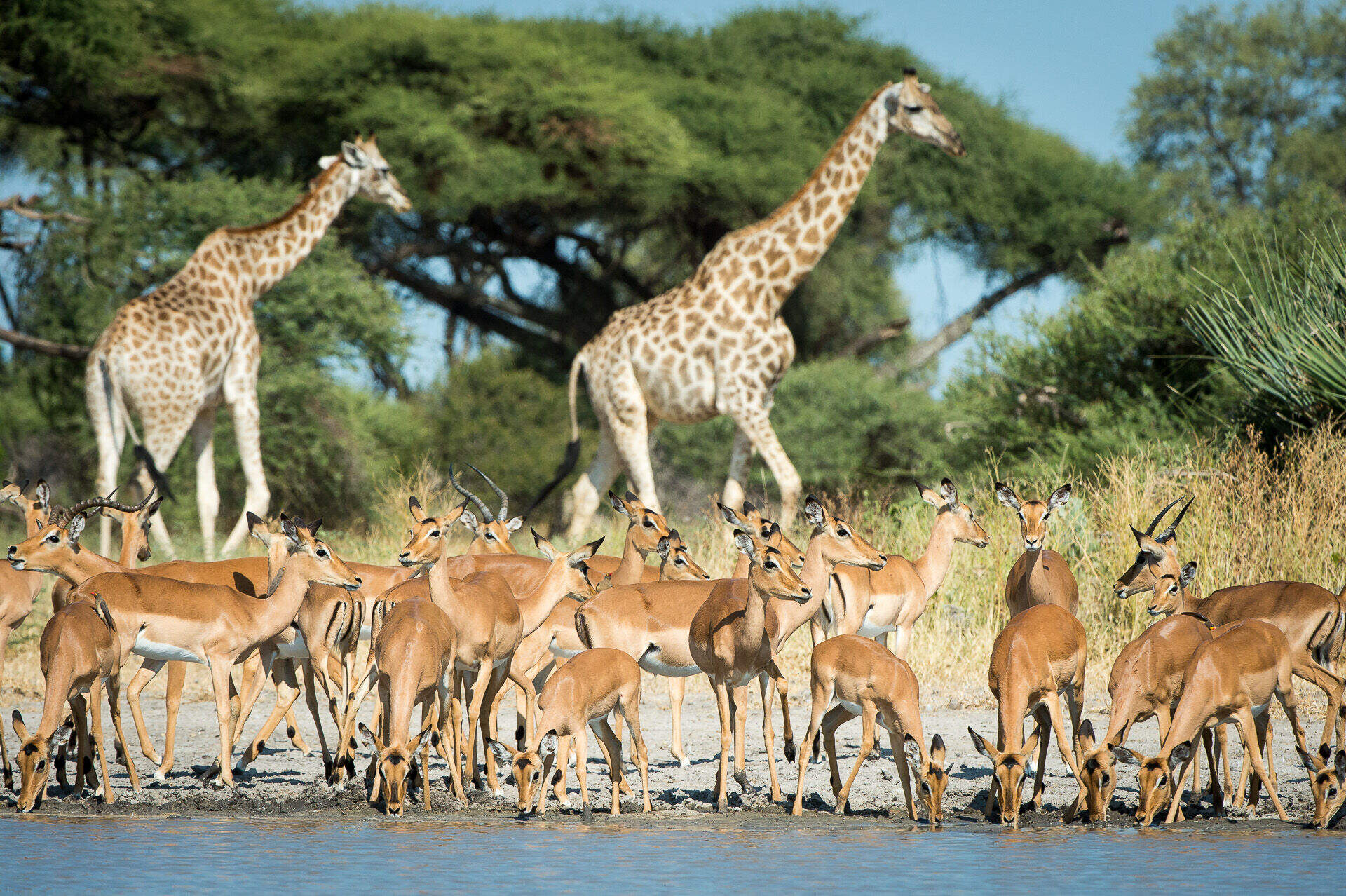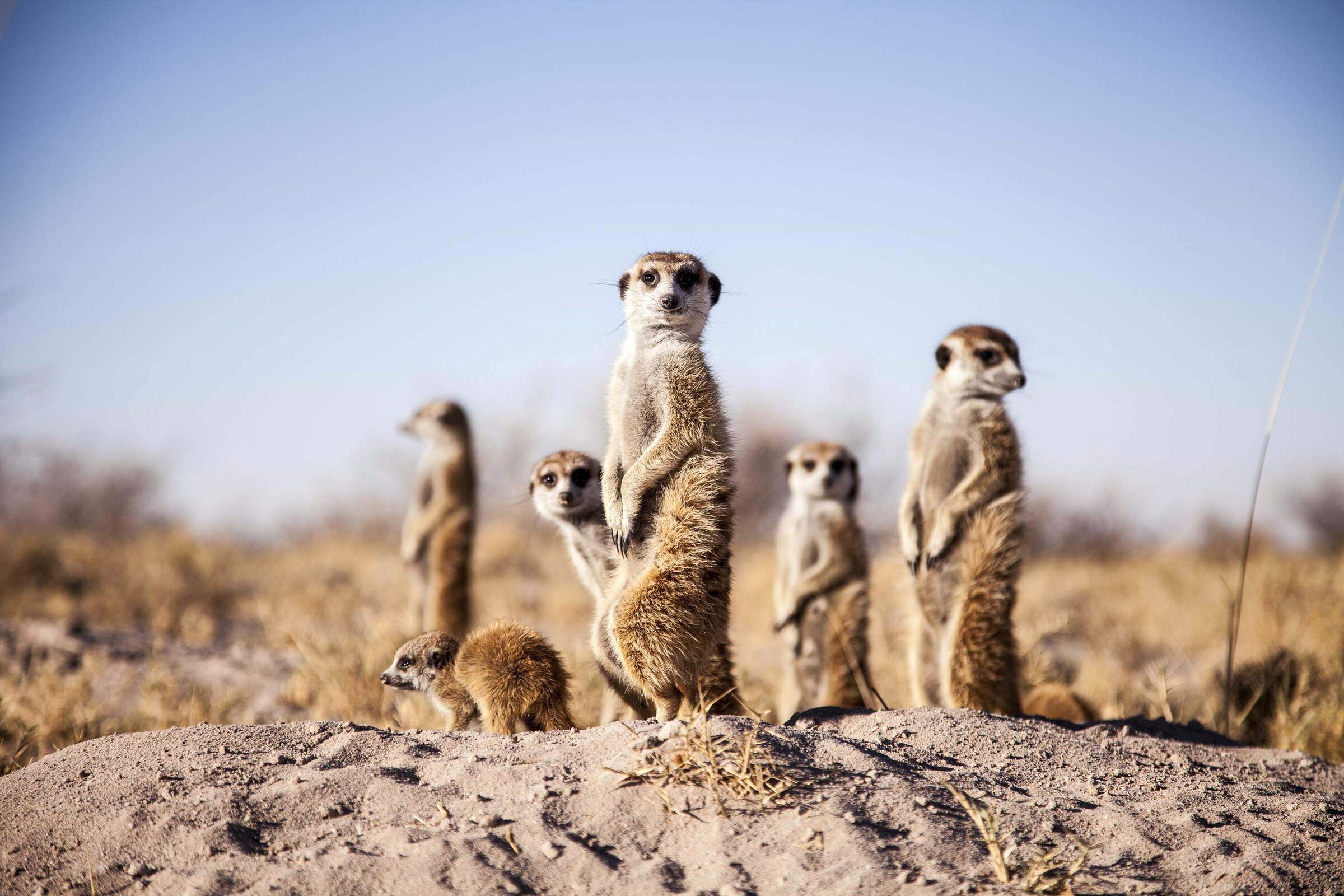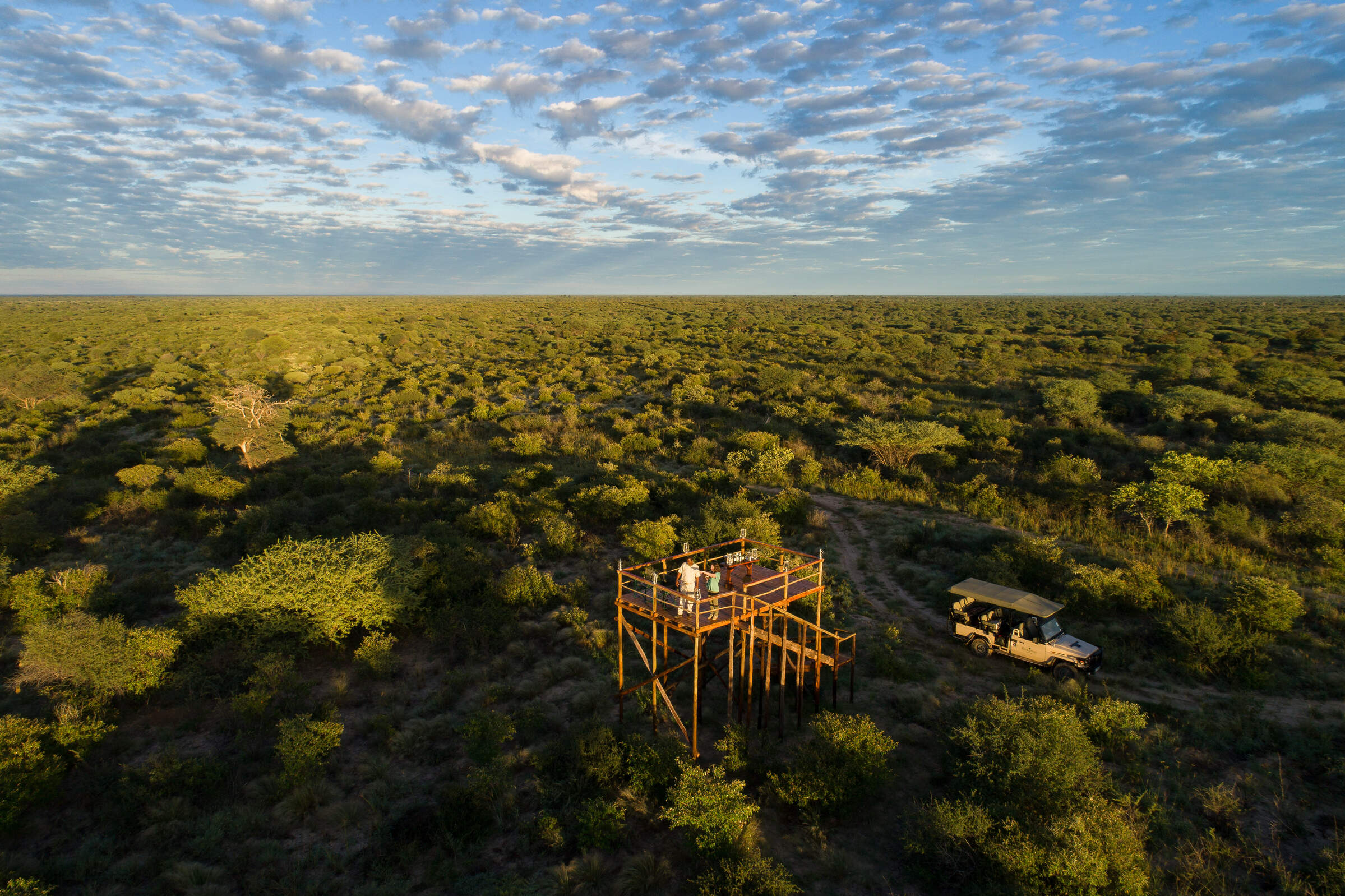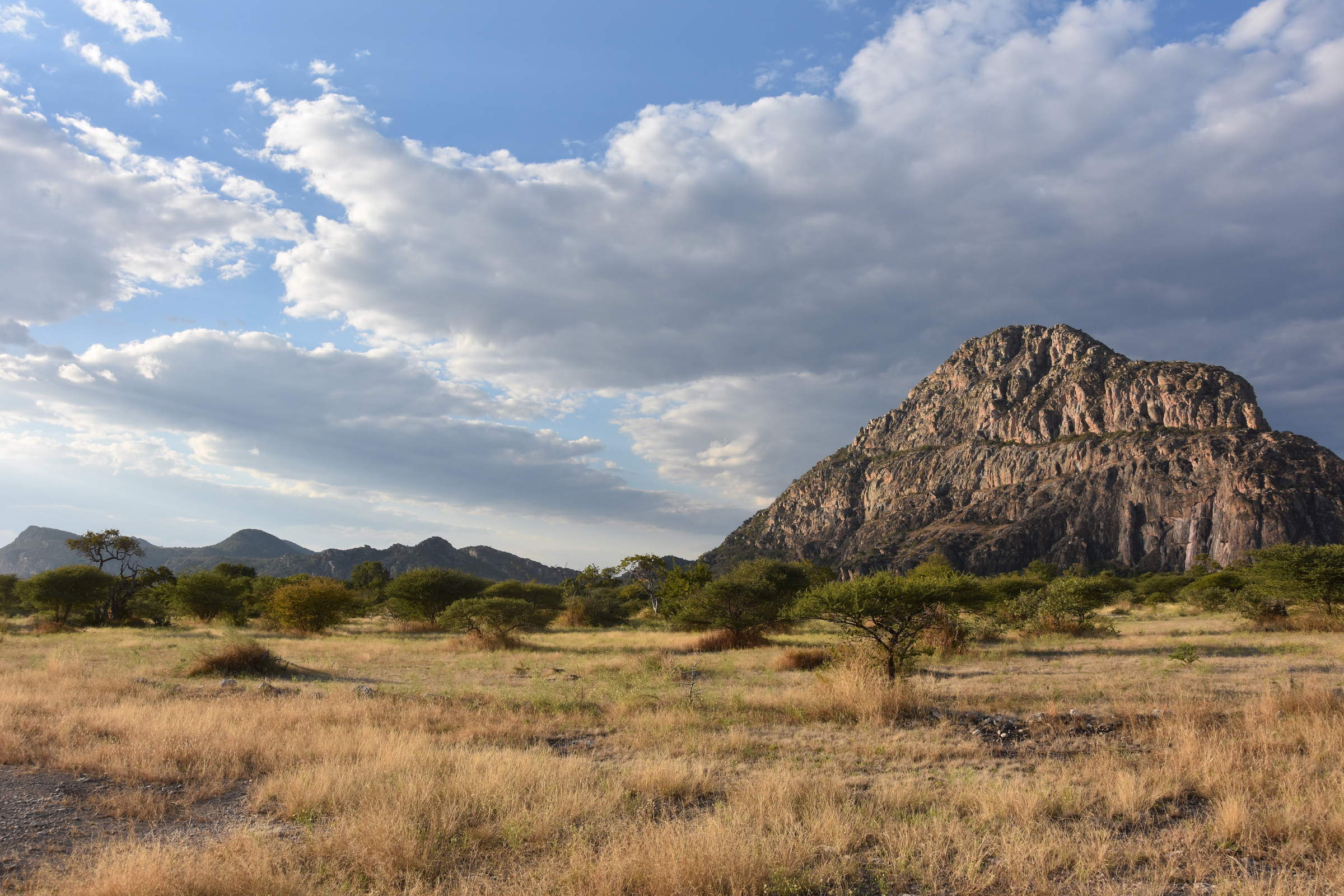Pom Pom Camp: Our full report
On the western side of Botswana’s Moremi Game Reserve, Pom Pom Camp sits on an island of the same name.
It’s a very scenic area where swathes of floodplain grasslands are dotted with small islands of acacia woodland – typical of many people's image of the Delta. The nine-room tented camp overlooks the reed-fringed Pom Pom Lagoon, which shrinks to a waterhole in the dry season, but in the flood season is covered with water lilies and popular with hippos.Please note that Pom Pom will be closed for a refurbishment from 1 October 2025 to 30 April 2026.
The camp’s nine tented rooms, including a family tent and a honeymoon chalet, are spacious double-shelled Meru-style tents, elevated on wooden platforms. At the front of each is a deck overlooking the lagoon, with an outdoor table and chairs providing a peaceful spot to enjoy the views and birdlife. The outer shell of the tent forms a shaded lounge area with desk and armchairs.
Meshed doors lead into the bedroom where comfortable twin beds are backed by a free-standing slatted headboard. Crisp white linen is brightened with colourful throws and cushions. Drinking water is placed on a small bedside table and reading lights are fitted to a simple wooden frame above the headboard; USB charging points are easily accessible too. At the foot of the beds are wooden chests, which create a handy space for storing luggage. Whitewashed floorboards lend the room an airy feel and large mesh windows allow a cooling breeze, enhanced by an overhead fan.
Behind the bedroom, in the en-suite bathroom, twin locally made artistic washbasins and two large mirrors stand opposite a wooden wardrobe and a canvas walled toilet. Through a rear door is an open-air shower, enclosed by canvas sides. Here you'll find a towel rail with fluffy white towels, toiletries (soap, body lotion, and shampoo/shower gel) and a lantern for ambient lighting. Other amenities include a laundry basket, washing powder for undergarments, a digital safe, mosquito repellent and coils, insect spray, and an air-horn in case of emergencies.
In Pom Pom’s family tent, two interlinked bedrooms share an en-suite bathroom, so it would work well for families with younger children or friends travelling together.
The honeymoon chalet has an outdoor bath with a lovely leafy backdrop in addition to the outside shower. It is also located furthest from the central area for more privacy. Having said this, on a previous visit, our team reported they could hear snippets of noise and music from the staff village, which is relatively close to this end of the camp.
Sandy paths lead from the tents to Pom Pom’s communal areas, and guests are always escorted after dark as wildlife does occasionally pass through camp.
Pom Pom's large, thatched main area is divided into three open-fronted sections: a help-yourself bar, two comfy lounge areas and a dining space dominated by a large teak table. A tea station displays a selection of teas, coffees and herbal drinks. The décor is neutral and simple with splashes of colour and local crafts added to good effect. It's cool and shady - great for relaxing during the heat of the day; and warmly lit at night by spirit-lamp chandeliers and interesting “bird's nest” light fittings. A large tree trunk at the center functions as a low display “table” for curios, and a separate curio shop stocks other local crafts including hand-woven baskets.
In front of the main area, steps and a ramp lead down to a sandy terrace and a firepit with camp chairs overlooking the lagoon, where the camp's mekoro (traditional canoes) are usually kept in the shade of jackalberry (African ebony) and fig trees. Here Pom Pom plays host to vervet monkeys, baboons, bushbuck and a variety of birds, including red-billed francolin and black-collared barbet (whose melodic duet is often heard in the early morning).
To the side of the main area is a small 1.2m-deep swimming pool surrounded by loungers and chairs.
Pom Pom Camp offers a variety of safari activities including 4WD safaris (day and night), mokoro trips, fishing, and walking safaris accompanied by an armed guide.
Historically the guides at Pom Pom used to comment that sightings were not consistent, explaining that in the wet season big game such as elephant, buffalo, giraffe, rhino and lion migrated away from the area in search of larger tracts of dry land (“pom pom” means “soft ground” in the local language). This fits in with our previous impressions here, as far back as 1992 when one of the Expert Africa team first visited. In recent times, however, the Delta has seen a change in water levels and there has been a significant shift in wildlife movements. Now lion and leopard are regularly seen throughout the year as the landscape has not flooded as well as in some years, and cheetah are also occasionally seen in the area.
On our last visit in January 2024, we had some very good game viewing, including a pair of mating leopards, a honey badger and a pride of lions. The highlight, however, was a pack of 21 wild dogs that had a 45-minute interaction with a herd of wildebeest that successfully defended their young. To watch the wildebeest chasing the dogs away and then standing shoulder to shoulder, presenting the dogs with a wall of horns, was a sight not easily forgotten.
On a previous visit, we tried the mokoro trip led by entertaining and informative guides; it was idyllic;. We haven't had a chance to assess the walking safaris so cannot recommend them personally.
While guiding at Pom Pom was patchy in the early days, things have changed in the last ten years. Our experience on our 2024 trip mirrors that on our stay in 2015; on both occasions we found the guides to be enthusiastic, knowledgeable, and engaging, striking up a good rapport with guests.
It is worth noting that due to fluctuating water levels in the Delta, water levels are at their lowest during the “green season” (around December to April), when the Okavango is not in flood. As a result, the lagoon in front of camp can be reduced to a small waterhole that acts as a focal drinking point for wildlife. On our January visit, we were particularly impressed one lunchtime when impala, zebra, giraffe, bushbuck, kudu, red lechwe, warthog and wildebeest could all be seen from the dining table! The downside, however, is that at this time of year mokoro trips are not always an option due to lower water levels.
Our view
Pom Pom Camp is a good, reasonably economical option to enjoy the Delta's scenic environments and great birdwatching. The wildlife here, while resident, can be variable, so come for some of the Okavango Delta's loveliest scenery and mokoro trips. And if you approach the 4WD safaris with moderate expectations you might just be surprised by their growing reputation for big cats! The camp's ambience is laidback and friendly. The smallest downfall was the food presentation, but it did not detract from the taste.
Geographics
- Location
- Okavango Delta Safari Reserves, Botswana
- Ideal length of stay
- 2–3 nights. We’d usually recommend three nights for most camps in the Delta, but because of Pom Pom’s variable game viewing we think that a two-night stay could be fine here in flood season.
- Directions
- Pom Pom Camp is accessed by light aircraft – a short 20-minute flight from Maun or 1½ hours from Kasane. From the airstrip, it's a five-minute transfer by 4WD to the lodge.
- Accessible by
- Fly-and-Transfer
Food & drink
- Usual board basis
- Full Board & Activities
- Food quality
- On our last visit to Pom Pom Camp in January 2024 we found that the quality, presentation, and selection of food were good overall. Occasionally, because we were out on a game drive longer than expected, the food had lost some of its zest. Meals are generally served as a buffet and guests are all seated together.
A light breakfast of cereal or porridge, muffins, fruit, yoghurt, toast, spreads, juices, tea and coffee are served before the morning activity, usually around the campfire.
For brunch, on return from the morning activity, we were served a buffet of cooked breakfast options along with a variety of fresh pizzas, spinach tartlets, Okavango fish (tilapia) and a range of salads. Homemade bread, cold meats, cheese and crackers, and a fresh fruit platter were also available.
Before setting out on the afternoon activity, afternoon tea consisted of fresh muffins, shortbread biscuits and fresh fruit slices, along with iced tea and coffee and a selection of hot drinks.
Dinner is generally three courses. We had a traditional meal cooked on open flames, with beef fillet, lamb chops, sausages and seswaa (traditional meat stew), with pap (polenta), sweetcorn and vegetables. For dessert, we celebrated a birthday in camp and shared a cake with other guests, along with a chocolate pudding.
After dinner, drinks were served around the campfire. - Dining style
- Group Meals
- Dining locations
- Indoor and Outdoor Dining
- Further dining info, including room service
- Private dining can be arranged on request.
- Drinks included
- All drinks are included (nothing is stocked that guests have to pay extra for). Red and white wine are served at dinner, and house spirits are also available.
Special interests
- Family holidays
- With a family chalet, consisting of two interlinked bedrooms with a shared bathroom, Pom Pom Camp is a good option on a family safari to Botswana – ideally with children aged 12 or over.
- See ideas for Family holidays in Botswana
- Solo Travel
- Pom Pom Camp does not charge a single supplement in the green season, This, along with communal dining, make the small camp an ideal option for solo travellers on safari in Botswana.
- See ideas for Solo Travel in Botswana
- Birdwatching
- Located within extensive floodplain areas, the birding at Pom Pom Camp offers is excellent opportunities for birding in Botswana. Water-associated birds are a feature here and sightings may include wattled crane, Pel's fishing owlDickinson’s kestrel, African palm swifts, slaty and black egrets and black coucals.
- See ideas for Birdwatching in Botswana
Children
- Attitude towards children
- Pom Pom Camp welcomes children from the age of 6 and offers a family tent that sleeps up to four people in connecting double and twin rooms, with a shared bathroom.
- Property’s age restrictions
- A private vehicle is compulsory for families with children 6 to 11 years old. For safety reasons, children under the age of 12 are not permitted to do the mokoro trips and nature walks are at the discretion of the guides.
- Special activities & services
- No special activities or services are offered for children.
- Equipment
- Pom Pom has a family tent that sleeps up to four people in connecting double and twin rooms, with a shared bathroom.
- Generally recommended for children
- We would recommend Pom Pom Camp for children aged 12 and up, unless the family is willing to pay for a private activity vehicle.
- Notes
- Children at Pom Pom Camp must be under the supervision of their parents or guardians at all times as the camp borders a lagoon and is not fenced from potentially dangerous wildlife.
Our travellers’ wildlife sightings from Pom Pom Camp
Since mid-2018, many of our travellers who stayed at Pom Pom Camp have kindly recorded their wildlife sightings and shared them with us. The results are below. Click an animal to see more, and here to see more on our methodology.

100% success

100% success

100% success

100% success

100% success

100% success

100% success

100% success

90% success

56% success

56% success

50% success

50% success

43% success

17% success

17% success

13% success

0% success
Communications
- Power supply notes
- The generator runs during the day and goes off at night, when a low-wattage lighting system in the rooms is powered by a bank of batteries (recharged by the generator). The fans in the bedrooms are also powered at night.
There are plug points in the rooms, and USB points next to the beds. - Communications
- Wi-Fi is expected to be installed by late 2024, but there is no cellphone reception, no direct phone and – until then – no email. In an emergency, radio contact can be made with the main office in Maun.
- Water supply
- Borehole
Health & safety
- Malarial protection recommended
- Yes
- Medical care
- All the managers and guides are first-aid trained and there are full trauma kits on site. The closest doctor is in Maun, which is a 20-minute flight. In an emergency, the camp has access to Medivac. Please note however that it is only possible to fly out of camp during daylight hours as the bush airstrips do not have any lighting at night.
- Dangerous animals
- High Risk
- Security measures
- Because Pom Pom Camp is not fenced against potentially dangerous animals, guests are escorted to their rooms after dark. There is an airhorn in each tent for guests to attract attention in an emergency, and the manager's house is close by.
- Fire safety
- There are fire extinguishers outside each tent and in the communal areas.
Activities
4WD Safari
Birdwatching
Boat trip
Fishing
Guided walking safari
Helicopter
Mokoro
Night drive
Private activities
Extras
- Disabled access
- On Request
- Laundry facilities
- A laundry service is included at the camp – excluding undergarments. Washing powder is provided in the rooms for guests to wash personal items.
- Money
- There is an electronic safe in each tent.
All major currencies are accepted, including US dollars, British pounds, euros, South African rand and Botswana pula. Mastercard and Visa are accepted but not Amex or travellers' cheques. There is no fee charged for credit-card payments.
Other lodges in Okavango Delta Safari Reserves
Alternative places to stay in this same area.
